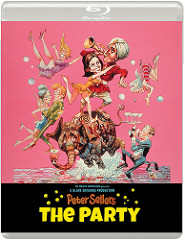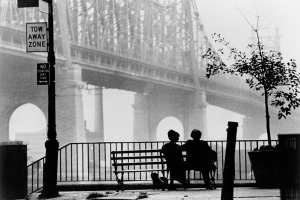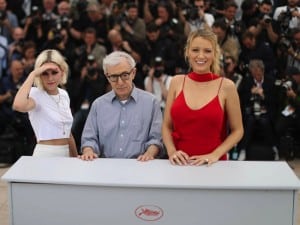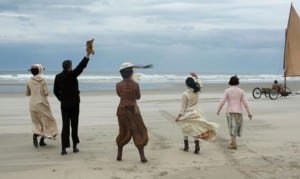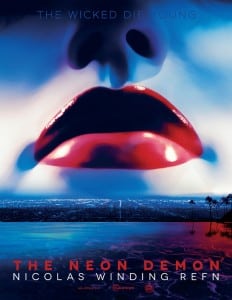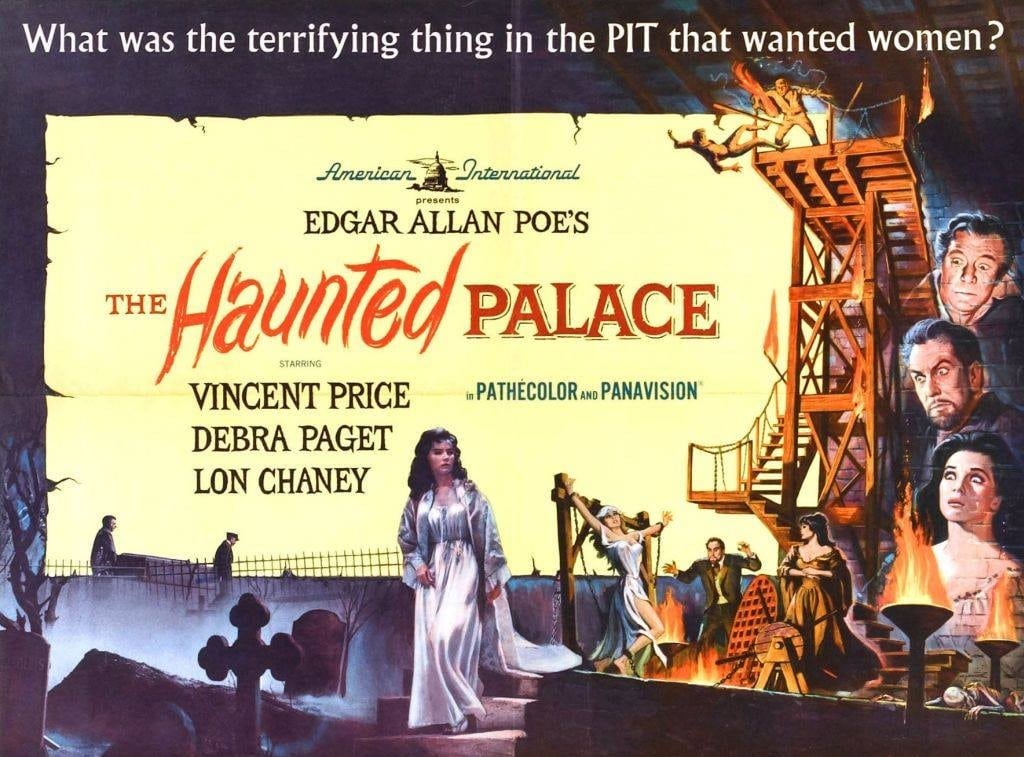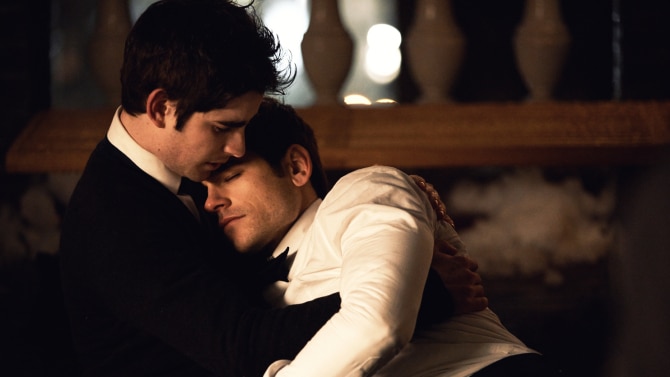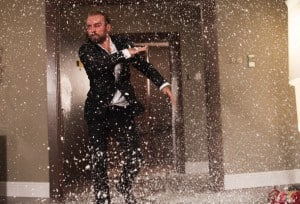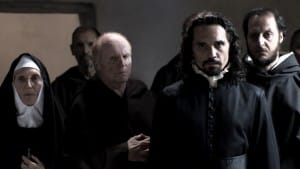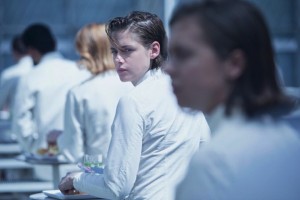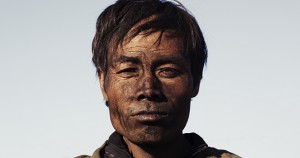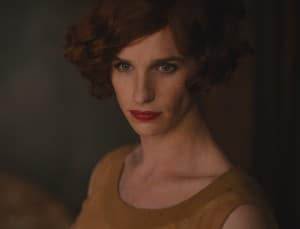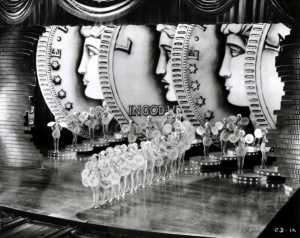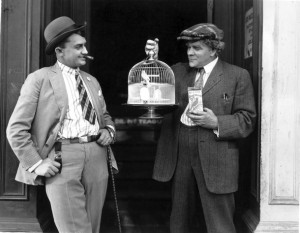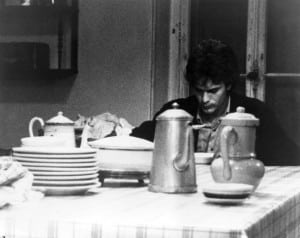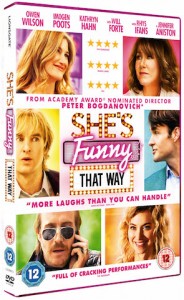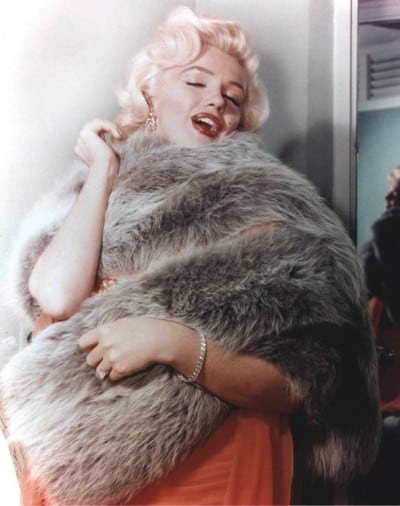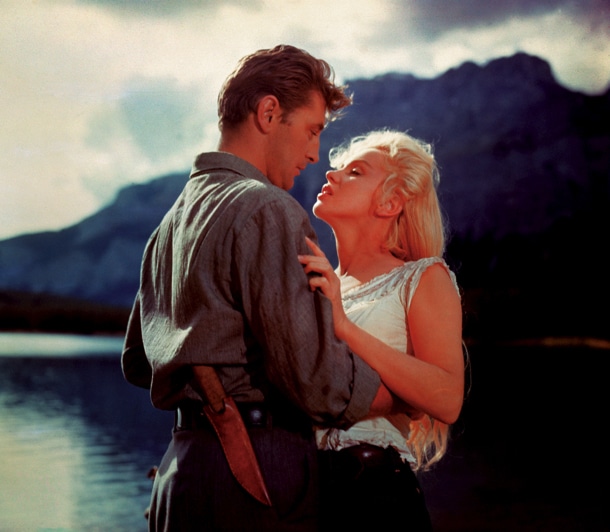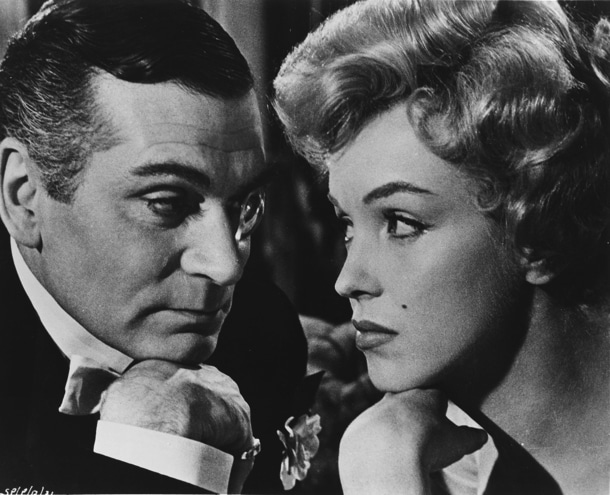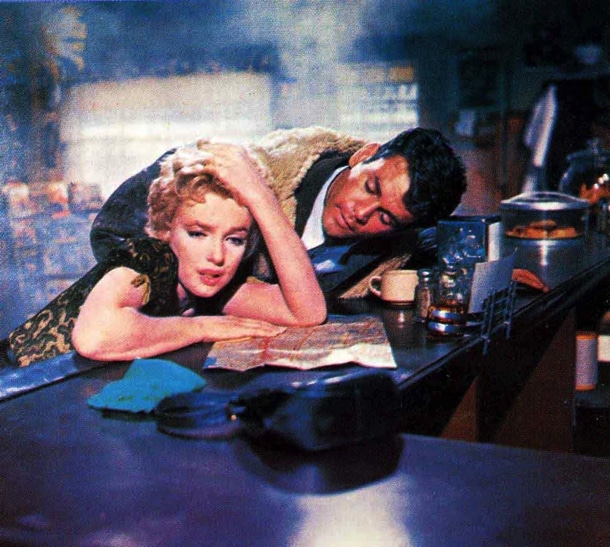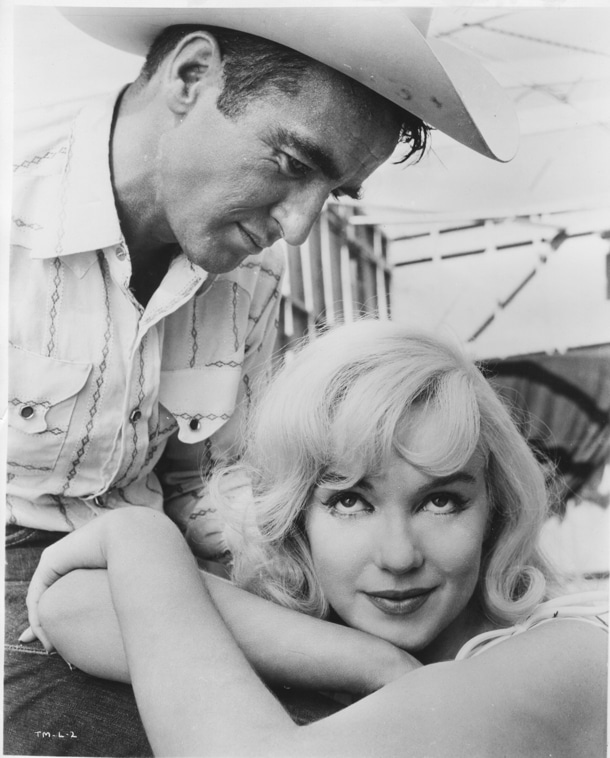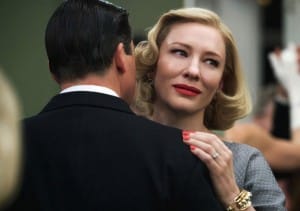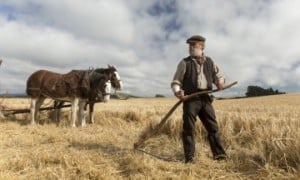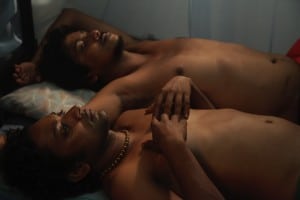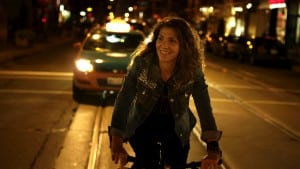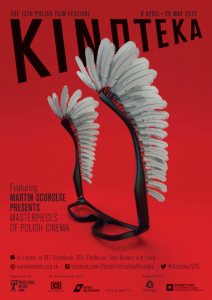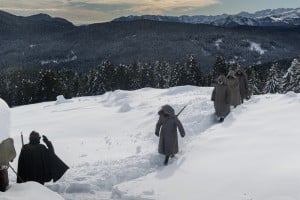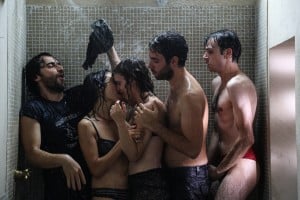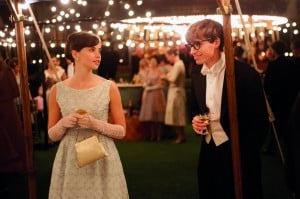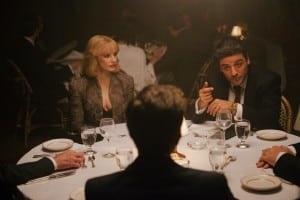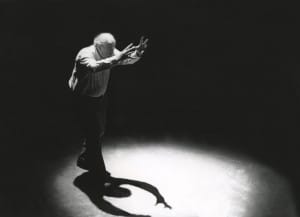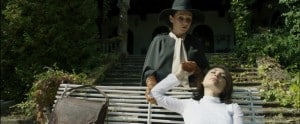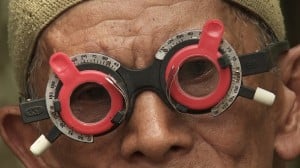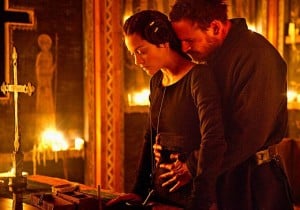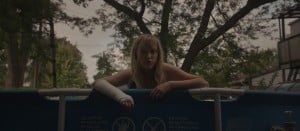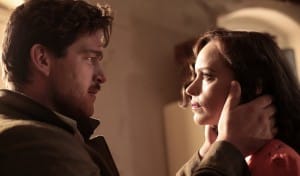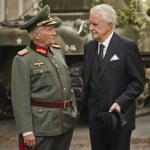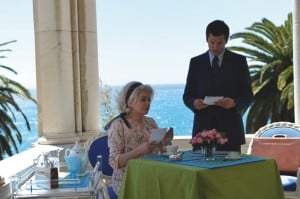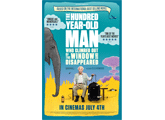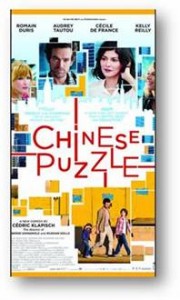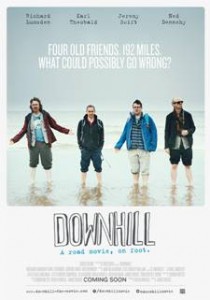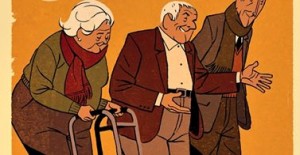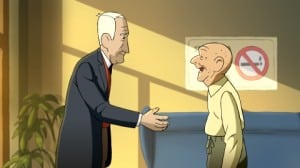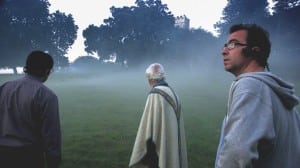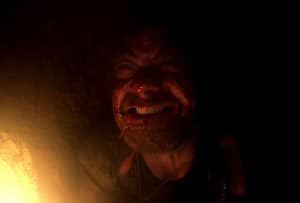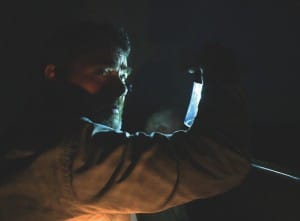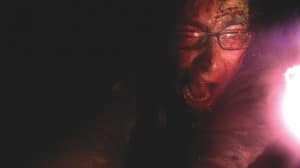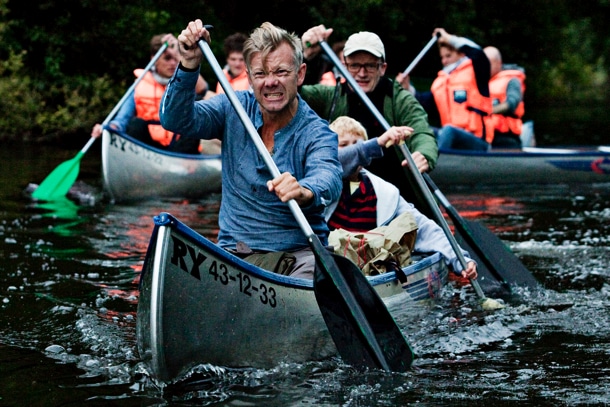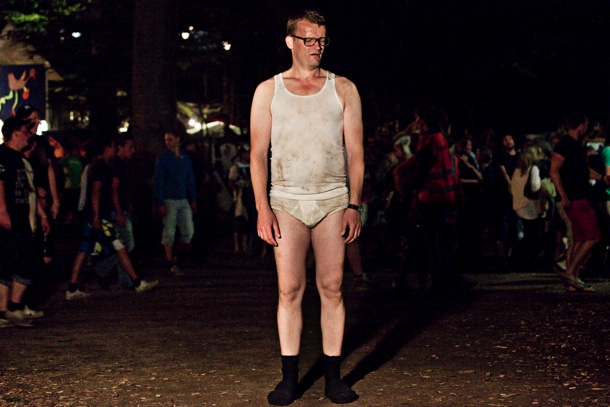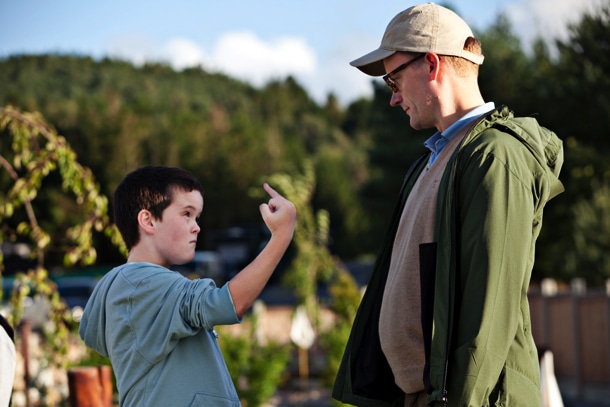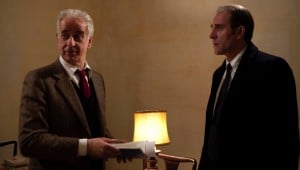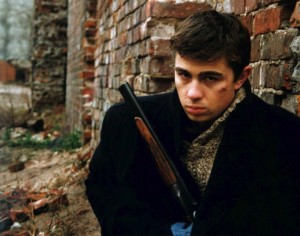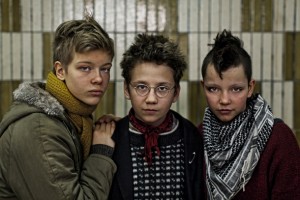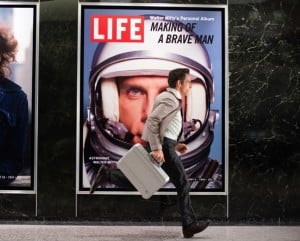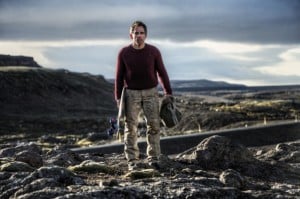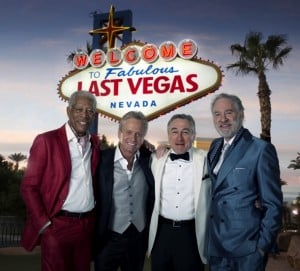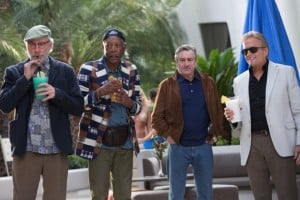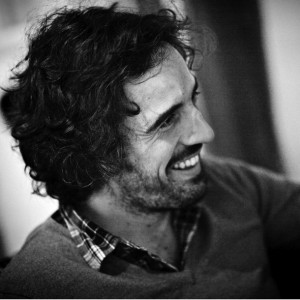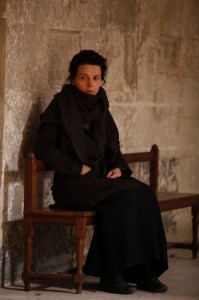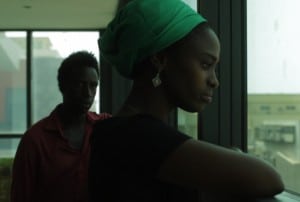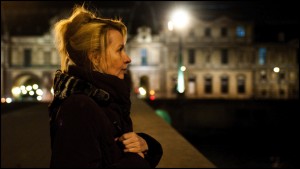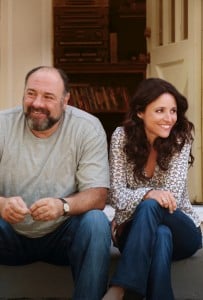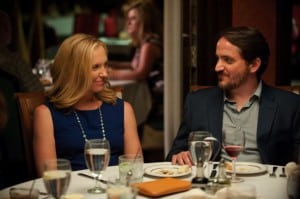SUNDANCE is the top American festival for independent film. The brainchild of Robert Redford, it takes place each year in the snowy city of Park Town, Utah, often selecting films that go on to become strong contenders in Hollywood’s annual awards race. Previous selections include 2006’s Little Miss Sunshine, which won two Oscars and 2012’s Beasts of the Southern Wild, which was nominated for four Oscars.
This year’s 30th Festival offers the latest indie docs and features taking a look at the lives of extraordinary people. From 118 films (97 World premieres) the competition strand will showcase 17 feature films and 11 documentaries from upcoming directors together with those of more seasoned critical acclaim. No less than 11 documentaries will be shown in the premieres section, reflecting the increased popularity of this form of filmmaking. Robert Redford describes this as ‘a cultural exchange’.
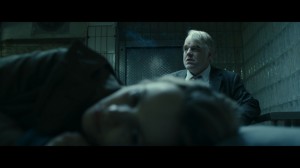
Highlights this year will include 20,000 Days on Earth, Iain Forsyth and Jane Pollard’s biopic of the notorious musician Nick Cave; In Mitt. Greg Whiteley follows former governor Mitt Romney on his failed 2012 US presidential campaign. Oscar-winning documentary director Alex Gibney returns with Finding Fela, showcasing the life of Nigerian musician and activist Fela Anikulapo Kuti, while To Be Takei by Jennifer Kroot explores the career of Star Trek actor George Takei.

In the dramatic section, Mike Cahill’s I Origins, is a drama about a pair of scientists who make a breakthrough altering the future of mankind; Dutch director Anton Corbijn presents his adaptation of John le Carre’s best-selling thriller novel A Most Wanted Man, featuring a starry cast of Philip Seymour Hoffman, Rachel McAdams and Willem Dafoe. British actress Keira Knightley stars as a young woman with emotional development issues in Lynn Shelton’s Laggies alongside Sam Rockwell and Chloe Grace Moretz. Frank is Irish director Lenny Abrahamson’s follow-up to What Richard Did (2012).
The theme of genre-defying films continues within the premieres category. Oscar-nominated actor William H Macy makes his directorial debut with Ruddersless, a story of a bereft father who forms a rock and roll band to keep the memory of his lost son’s songs alive. Starring Billy Crudup and Anton Yelchin it will be the closing film this year. Arrested Development star David Cross also makes his directorial debut with black comedy Hits, which examines the culture of fame in today’s YouTube generation.

Comedy-wise, British director Michael Winterbottom returns to Sundance with his latest comedy: ‘The Trip to Italy, a follow-up to 2010’s The Trip, Rob Brydon and Steve Coogan’s good food travelogue of the best restaurants in Britain. Comedian Nick Offerman’s directorial debut is American Ham, a live stand-up show with topics as diverse and sex and woodworking. Other strands this year are ‘In the Spotlight’, ‘Park City at Midnight’ and ‘New Frontier’.
Rather than cherry-picking from the selection – here’s this year’s full run-down to give you a full flavour oF what’s to come:
PREMIERES
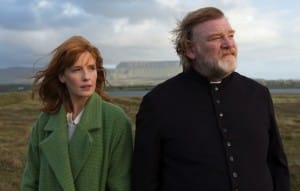 Calvary / Ireland, UK (Dir/writer: John Michael McDonagh) For those who enjoyed The Guard, Calvary sees McDonagh back on familiar territory with this black comedic drama about a priest tormented by his community. Father James is a good man intent on making the world a better place. When his life is threatened one day during confession, he finds he has to battle the dark forces closing in around him.Cast: Brendan Gleeson, Chris O’Dowd, Kelly Reilly, Aidan Gillen, Dylan Moran, Marie-Josée Croze.
Calvary / Ireland, UK (Dir/writer: John Michael McDonagh) For those who enjoyed The Guard, Calvary sees McDonagh back on familiar territory with this black comedic drama about a priest tormented by his community. Father James is a good man intent on making the world a better place. When his life is threatened one day during confession, he finds he has to battle the dark forces closing in around him.Cast: Brendan Gleeson, Chris O’Dowd, Kelly Reilly, Aidan Gillen, Dylan Moran, Marie-Josée Croze.
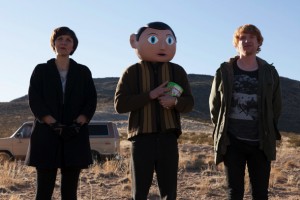 Frank / Ireland, UK (Director: Lenny Abrahamson, Screenwriters: Jon Ronson, Peter Straughan) — Frank is an offbeat comedy about a wannabe musician who finds himself out of his depth when he joins an avant garde rock band led by the enigmatic Frank—a musical genius who hides himself inside a large fake head. Cast: Michael Fassbender, Domhnall Gleeson, Maggie Gyllenhaal, Scoot McNairy.
Frank / Ireland, UK (Director: Lenny Abrahamson, Screenwriters: Jon Ronson, Peter Straughan) — Frank is an offbeat comedy about a wannabe musician who finds himself out of his depth when he joins an avant garde rock band led by the enigmatic Frank—a musical genius who hides himself inside a large fake head. Cast: Michael Fassbender, Domhnall Gleeson, Maggie Gyllenhaal, Scoot McNairy.
 Hits / U.S.A. (Director and screenwriter: David Cross) — A small town in upstate New York is populated by people who wallow in unrealistic expectations. There, fame, delusion, earnestness, and recklessness meet, shake hands, and disrupt the lives around them. Cast: Meredith Hagner, Matt Walsh, James Adomian, Jake Cherry Derek Waters, Wyatt Cenac.
Hits / U.S.A. (Director and screenwriter: David Cross) — A small town in upstate New York is populated by people who wallow in unrealistic expectations. There, fame, delusion, earnestness, and recklessness meet, shake hands, and disrupt the lives around them. Cast: Meredith Hagner, Matt Walsh, James Adomian, Jake Cherry Derek Waters, Wyatt Cenac.
I Origins / U.S.A. (Dir/Writer: Mike Cahill) — A molecular biologist and his lab partner uncover startling evidence that could fundamentally change society as we know it and cause them to question their once-certain beliefs in science and spirituality. Cast: Michael Pitt, Brit Marling, Astrid Bergès-Frisbey, Steven Yeun, Archie Panjabi. 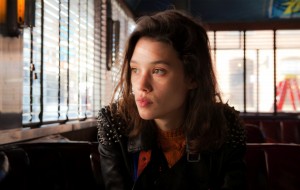
Laggies/ U.S.A. (Dir: Lynn Shelton, writer: Andrea Seigel) Laggies is a coming of age story about a 28-year-old woman stuck in permanent adolescence. Unable to find her career calling, still hanging out with the same friends, and living with her high school boyfriend, Megan must finally navigate her own future when an unexpected marriage proposal sends her into a panic. Cast: Keira Knightley, Sam Rockwell, Chloë Grace Moretz, Ellie Kemper, Jeff Garlin, Mark Webber.
Little Accidents / U.S.A. (Dir/writer: Sara Colangelo) — In a small American coal town living in the shadow of a recent mining accident, the disappearance of a teenage boy draws three people together—a surviving miner, the lonely wife of a mine executive, and a local boy—in a web of secrets. Cast: Elizabeth Banks, Boyd Holbrook, Chloë Sevigny, Jacob Lofland, Josh Lucas.
 Love is Strange / U.S.A. (Director: Ira Sachs, Screenwriters: Ira Sachs, Mauricio Zacharias) — After 39 years together, Ben and George finally tie the knot, but George loses his job as a result, and the newlyweds must sell their New York apartment and live apart, relying on friends and family to make ends meet. Cast: John Lithgow, Alfred Molina, Marisa Tomei, Darren Burrows, Charlie Tahan, Cheyenne Jackson.
Love is Strange / U.S.A. (Director: Ira Sachs, Screenwriters: Ira Sachs, Mauricio Zacharias) — After 39 years together, Ben and George finally tie the knot, but George loses his job as a result, and the newlyweds must sell their New York apartment and live apart, relying on friends and family to make ends meet. Cast: John Lithgow, Alfred Molina, Marisa Tomei, Darren Burrows, Charlie Tahan, Cheyenne Jackson.
A Most Wanted Man / Germany, U.S.A. (Director: Anton Corbijn, Screenwriter: Andrew Bovell) — Based on John le Carré’s bestselling book, Anton Corbijn directs this modern-day thriller with Academy Award–winning actor Philip Seymour Hoffman, Rachel McAdams, Robin Wright, and two-time Academy Award nominee Willem Dafoe headlining an ensemble cast.Cast: Philip Seymour Hoffman, Rachel McAdams, Willem Dafoe, Robin Wright.
Nick Offerman: American Ham / U.S.A. (Director: Jordan Vogt-Roberts, Screenwriter: Nick Offerman) — WARNING: MINOR NUDITY AND NOT SUITABLE FOR VEGETARIANS. This live taping of Nick Offerman’s hilarious one-man show at New York’s historic Town Hall theater features a collection of anecdotes, songs, and woodworking/oral sex techniques. The routine includes Offerman’s 10 tips for living a more prosperous life, so hearken well. Cast: Nick Offerman.
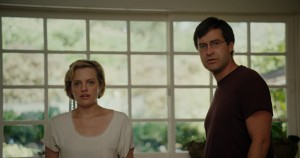 The One I Love / U.S.A. (Director: Charlie McDowell, Screenwriter: Justin Lader) — Struggling with a marriage on the brink of falling apart, a couple escapes for the weekend in pursuit of their better selves, only to discover an unusual dilemma waiting for them. Cast: Mark Duplass, Elisabeth Moss, Ted Danson.
The One I Love / U.S.A. (Director: Charlie McDowell, Screenwriter: Justin Lader) — Struggling with a marriage on the brink of falling apart, a couple escapes for the weekend in pursuit of their better selves, only to discover an unusual dilemma waiting for them. Cast: Mark Duplass, Elisabeth Moss, Ted Danson.
The Raid 2 / Indonesia (Director and screenwriter: Gareth Evans) — Picking up where the first film left off, The Raid 2 follows Rama as he goes undercover and infiltrates the ranks of a ruthless Jakarta crime syndicate in order to protect his family and expose the corruption in his own police force. Cast: Iko Uwais, Yayan Ruhian, Arifin Putra, Oka Antara, Tio Pakusadewo, Alex Abbad.
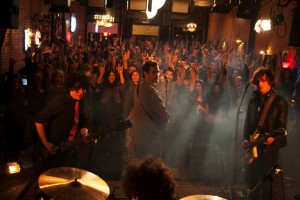
Rudderless / U.S.A. (Director: William H. Macy, Screenwriters: Casey Twenter, Jeff Robison, William H. Macy) — When a grieving father in a downward spiral stumbles upon a box of his deceased son’s original music, he forms a rock ‘n’ roll band, which changes his life.Cast: Billy Crudup, Anton Yelchin, Felicity Huffman, Selena Gomez, Laurence Fishburne, William H. Macy. CLOSING NIGHT FILM
 They Came Together / U.S.A. (Director: David Wain, Screenwriters: Michael Showalter, David Wain) — This subversion/spoof/deconstruction of the romantic comedy genre has a vaguely, but not overtly, Jewish leading man, a klutzy, but adorable, leading lady, and New York City itself as another character in the story. Cast: Amy Poehler, Paul Rudd, Ed Helms, Cobie Smulders, Max Greenfield, Christopher Meloni.
They Came Together / U.S.A. (Director: David Wain, Screenwriters: Michael Showalter, David Wain) — This subversion/spoof/deconstruction of the romantic comedy genre has a vaguely, but not overtly, Jewish leading man, a klutzy, but adorable, leading lady, and New York City itself as another character in the story. Cast: Amy Poehler, Paul Rudd, Ed Helms, Cobie Smulders, Max Greenfield, Christopher Meloni.

The Trip to Italy / United Kingdom (Director: Michael Winterbottom, Screenwriters: Rob Brydon, Steve Coogan, Michael Winterbottom) Michael Winterbottom reunites Steve Coogan and Rob Brydon for more delectable food, some sharp-elbowed rivalry, and plenty of laughs. Cast: Steve Coogan, Rob Brydon.
The Voices / U.S.A., Germany (Director: Marjane Satrapi, Screenwriter: Michael R. Perry) — This genre-bending tale centers around Jerry Hickfang, a lovable but disturbed factory worker who yearns for attention from a woman in accounting. When their relationship takes a sudden, murderous turn, Jerry’s evil talking cat and benevolent talking dog lead him down a fantastical path where he ultimately finds salvation. Cast: Ryan Reynolds, Gemma Arterton, Anna Kendrick, Jacki Weaver.
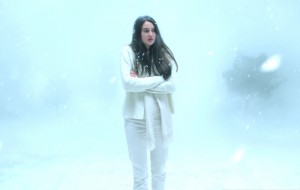 White Bird in a Blizzard / U.S.A. (Director and screenwriter: Gregg Araki) — Based on the acclaimed novel by Laura Kasischke, White Bird in a Blizzard tells the story of Kat Connors, a young woman whose life is turned upside down by the sudden disappearance of her beautiful, enigmatic mother. Cast: Shailene Woodley, Eva Green, Christopher Meloni, Shiloh Fernandez, Gabourey Sidibe, Thomas Jane.
White Bird in a Blizzard / U.S.A. (Director and screenwriter: Gregg Araki) — Based on the acclaimed novel by Laura Kasischke, White Bird in a Blizzard tells the story of Kat Connors, a young woman whose life is turned upside down by the sudden disappearance of her beautiful, enigmatic mother. Cast: Shailene Woodley, Eva Green, Christopher Meloni, Shiloh Fernandez, Gabourey Sidibe, Thomas Jane.
Young Ones / U.S.A. (Director and screenwriter: Jake Paltrow) — Set in a future where water is hard to find, a teenage boy sets out to protect his family and survive. Cast: Michael Shannon, Nicholas Hoult, Elle Fanning, Kodi Smit-McPhee.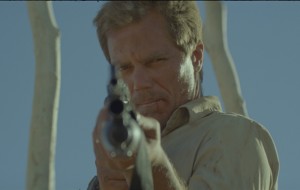
DOCUMENTARY PREMIERES
Renowned filmmakers and films about far-reaching subjects comprise this section highlighting our ongoing commitment to documentaries. Each film is a world premiere.
The Battered Bastards of Baseball / U.S.A. (Directors: Chapman Way, Maclain Way) — Hollywood veteran Bing Russell creates the only independent baseball team in the country—alarming the baseball establishment and sparking the meteoric rise of the 1970s Portland Mavericks.
Finding Fela / U.S.A. (Director: Alex Gibney) — Fela Anikulapo Kuti created the musical movement Afrobeat and used it as a political forum to oppose the Nigerian dictatorship and advocate for the rights of oppressed people. This is the story of his life, music, and political importance.
 Freedom Summer / U.S.A. (Director: Stanley Nelson) — In the summer of 1964, more than 700 students descended on violent, segregated Mississippi. Defying authorities, they registered voters, created freedom schools, and established the Mississippi Freedom Democratic Party. Fifty years later, eyewitness accounts and never-before-seen archival material tell their story. Not all of them would make it through.
Freedom Summer / U.S.A. (Director: Stanley Nelson) — In the summer of 1964, more than 700 students descended on violent, segregated Mississippi. Defying authorities, they registered voters, created freedom schools, and established the Mississippi Freedom Democratic Party. Fifty years later, eyewitness accounts and never-before-seen archival material tell their story. Not all of them would make it through.
Happy Valley / U.S.A. (Director: Amir Bar-Lev) — The children of “Happy Valley” were victimized for years, by a key member of the legendary Penn State college football program. But were Jerry Sandusky’s crimes an open secret? With rare access, director Amir Bar-Lev delves beneath the headlines to tell a modern American parable of guilt, redemption, and identity.
Last Days in Vietnam / U.S.A. (Director: Rory Kennedy) — During the chaotic final weeks of the Vietnam War, the North Vietnamese Army closes in on Saigon as the panicked South Vietnamese people desperately attempt to escape. On the ground, American soldiers and diplomats confront a moral quandary: whether to obey White House orders to evacuate only U.S. citizens.
Life Itself / U.S.A. (Director: Steve James) — Life Itself recounts the surprising and entertaining life of renowned film critic and social commentator Roger Ebert. The film details his early days as a freewheeling bachelor and Pulitzer Prize winner, his famously contentious partnership with Gene Siskel, his life-altering marriage, and his brave and transcendent battle with cancer. 
Mitt / U.S.A. (Director: Greg Whiteley) — A filmmaker is granted unprecedented access to a political candidate and his family as he runs for President.
This May Be the Last Time / U.S.A. (Director: Sterlin Harjo) — Filmmaker Sterlin Harjo’s Grandfather disappeared mysteriously in 1962. The community searching for him sang songs of encouragement that were passed down for generations. Harjo explores the origins of these songs as well as the violent history of his people.
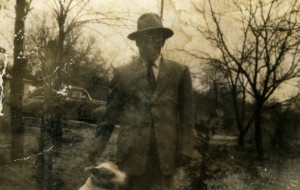
To Be Takei / U.S.A. (Director: Jennifer Kroot) — Over seven decades, actor and activist George Takei journeyed from a World War II internment camp to the helm of the Starship Enterprise, and then to the daily news feeds of five million Facebook fans. Join George and his husband, Brad, on a wacky and profound trek for life, liberty, and love.
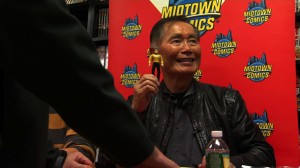
We Are The Giant / U.S.A., United Kingdom (Director: Greg Barker) — We Are The Giant tells the stories of ordinary individuals who are transformed by the moral and personal challenges they encounter when standing up for what they believe is right. Powerful and tragic, yet inspirational, their struggles for freedom echo across history and offer hope against seemingly impossible odds.
WHITEY: United States of America v. James J. Bulger / U.S.A. (Director: Joe Berlinger) — Infamous gangster James “Whitey” Bulger’s relationship with the FBI and Department of Justice allowed him to reign over a criminal empire in Boston for decades. Joe Berlinger’s documentary chronicles Bulger’s recent sensational trial, using it as a springboard to explore allegations of corruption within the highest levels of law enforcement.
U.S. DRAMATIC COMPETITION
Presenting the world premieres of 16 narrative feature films, the Dramatic Competition offers Festivalgoers a first look at groundbreaking new voices in American independent film.
Camp X-Ray / U.S.A. (Director and screenwriter: Peter Sattler) — A young woman is stationed as a guard in Guantanamo Bay, where she forms an unlikely friendship with one of the detainees. Cast: Kristen Stewart, Payman Maadi, Lane Garrison, J.J. Soria, John Carroll Lynch.
Cold in July / U.S.A. (Director: Jim Mickle, Screenwriters: Jim Mickle, Nick Damici) — After killing a home intruder, a small town Texas man’s life unravels into a dark underworld of corruption and violence. Cast: Michael C. Hall, Don Johnson, Sam Shepard, Vinessa Shaw, Nick Damici, Wyatt Russell.
Dear White People/ U.S.A. (Director and screenwriter: Justin Simien) — Four black students attend an Ivy League college where a riot breaks out over an “African American” themed party thrown by white students. With tongue planted firmly in cheek, the film explores racial identity in postracial America while weaving a story about forging one’s unique path in the world. Cast: Tyler Williams, Tessa Thompson, Teyonah Parris, Brandon Bell.
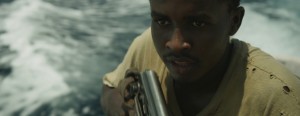 Fishing Without Nets / U.S.A., Somalia, Kenya (Director: Cutter Hodierne, Screenwriters: Cutter Hodierne, John Hibey, David Burkman) — A story of pirates in Somalia told from the perspective of a struggling, young Somali fisherman. Cast: Abdikani Muktar, Abdi Siad, Abduwhali Faarah, Abdikhadir Hassan, Reda Kateb, Idil Ibrahim.
Fishing Without Nets / U.S.A., Somalia, Kenya (Director: Cutter Hodierne, Screenwriters: Cutter Hodierne, John Hibey, David Burkman) — A story of pirates in Somalia told from the perspective of a struggling, young Somali fisherman. Cast: Abdikani Muktar, Abdi Siad, Abduwhali Faarah, Abdikhadir Hassan, Reda Kateb, Idil Ibrahim.
God’s Pocket/ U.S.A. (Director: John Slattery, Screenwriters: John Slattery, Alex Metcalf) — When Mickey’s stepson Leon is killed in a construction “accident,” Mickey tries to bury the bad news with the body. But when the boy’s mother demands the truth, Mickey finds himself stuck between a body he can’t bury, a wife he can’t please, and a debt he can’t pay.Cast: Philip Seymour Hoffman, Richard Jenkins, Christina Hendricks, John Turturro.
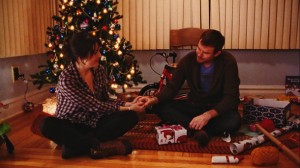 Happy Christmas / U.S.A. (Director and screenwriter: Joe Swanberg) — After a breakup with her boyfriend, a young woman moves in with her older brother, his wife, and their 2-year-old son. Cast: Anna Kendrick, Melanie Lynskey, Mark Webber, Lena Dunham, Joe Swanberg.
Happy Christmas / U.S.A. (Director and screenwriter: Joe Swanberg) — After a breakup with her boyfriend, a young woman moves in with her older brother, his wife, and their 2-year-old son. Cast: Anna Kendrick, Melanie Lynskey, Mark Webber, Lena Dunham, Joe Swanberg.
Hellion / U.S.A. (Director and screenwriter: Kat Candler) — When motocross and heavy metal obsessed, 13-year-old Jacob’s delinquent behavior forces CPS to place his little brother Wes with his aunt, Jacob and his emotionally absent father must finally take responsibility for their actions and each other in order to bring Wes home. Cast: Aaron Paul, Juliette Lewis, Josh Wiggins, Deke Garner, Jonny Mars, Walt Roberts.
Infinitely Polar Bear / U.S.A. (Director and screenwriter: Maya Forbes) — A manic-depressive mess of a father tries to win back his wife by attempting to take full responsibility of their two young, spirited daughters, who don’t make the overwhelming task any easier. Cast: Mark Ruffalo, Zoe Saldana, Imogene Wolodarsky, Ashley Aufderheide.
Jamie Marks is Dead / U.S.A. (Director and screenwriter: Carter Smith) — No one seemed to care about Jamie Marks until after his death. Hoping to find the love and friendship he never had in life, Jamie’s ghost visits former classmate Adam McCormick, drawing him into the bleak world between the living and the dead. Cast: Cameron Monaghan, Noah Silver, Morgan Saylor, Judy Greer, Madisen Beaty, Liv Tyler.
Kumiko, the Treasure Hunter/ U.S.A. (Director: David Zellner, Screenwriters: David Zellner, Nathan Zellner) — A lonely Japanese woman becomes convinced that a satchel of money buried in a fictional film is, in fact, real. Abandoning her structured life in Tokyo for the frozen Minnesota wilderness, she embarks on an impulsive quest to search for her lost mythical fortune. Cast: Rinko Kikuchi.
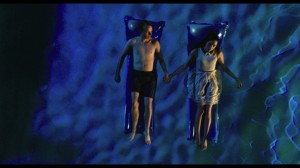
Life After Beth / U.S.A. (Director and screenwriter: Jeff Baena) — Zach is devastated by the unexpected death of his girlfriend, Beth. When she mysteriously returns, he gets a second chance at love. Soon his whole world turns upside down… Cast: Aubrey Plaza, Dane DeHaan, John C. Reilly, Molly Shannon, Cheryl Hines, Paul Reiser.
Low Down / U.S.A. (Director: Jeff Preiss, Screenwriters: Amy Albany, Topper Lilien) — Based on Amy Jo Albany’s memoir, Low Down explores her heart-wrenching journey to adulthood while being raised by her father, bebop pianist Joe Albany, as he teeters between incarceration and addiction in the urban decay and waning bohemia of Hollywood in the 1970s. Cast: John Hawkes, Elle Fanning, Glenn Close, Lena Headey, Peter Dinklage, Flea.
The Skeleton Twins / U.S.A. (Director: Craig Johnson, Screenwriters: Craig Johnson, Mark Heyman) — When estranged twins Maggie and Milo feel that they’re at the end of their ropes, an unexpected reunion forces them to confront why their lives went so wrong. As the twins reconnect, they realize the key to fixing their lives may just lie in repairing their relationship. Cast: Bill Hader, Kristen Wiig, Luke Wilson, Ty Burrell, Boyd Holbrook, Joanna Gleason.
The Sleepwalker / U.S.A., Norway (Director: Mona Fastvold, Screenwriters: Mona Fastvold, Brady Corbet) — A young couple, Kaia and Andrew, are renovating Kaia´s secluded family estate. Their lives are violently interrupted when unexpected guests arrive. The Sleepwalker chronicles the unraveling of the lives of four disparate characters as it transcends genre conventions and narrative contrivance to reveal something much more disturbing. Cast: Gitte Witt, Christopher Abbott, Brady Corbet, Stephanie Ellis.
Song One / U.S.A. (Director and screenwriter: Kate Barker-Froyland) — Estranged from her family, Franny returns home when an accident leaves her brother comatose. Retracing his life as an aspiring musician, she tracks down his favorite musician, James Forester. Against the backdrop of Brooklyn’s music scene, Franny and James develop an unexpected relationship and face the realities of their lives. Cast: Anne Hathaway, Johnny Flynn, Mary Steenburgen, Ben Rosenfield.

Whiplash / U.S.A. (Director and screenwriter: Damien Chazelle) — Under the direction of a ruthless instructor, a talented young drummer begins to pursue perfection at any cost, even his humanity. Cast: Miles Teller, JK Simmons. DAY ONE FILM
U.S. DOCUMENTARY COMPETITION
Sixteen world-premiere American documentaries that illuminate the ideas, people, and events that shape the present day.
Alive Inside: A Story of Music & Memory / U.S.A. (Director: Michael Rossato-Bennett) — Five million Americans suffer from Alzheimer’s disease and dementia—many of them alone in nursing homes. A man with a simple idea discovers that songs embedded deep in memory can ease pain and awaken these fading minds. Joy and life are resuscitated, and our cultural fears over aging are confronted.
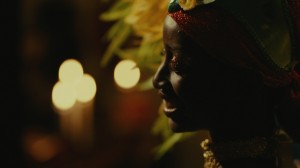 All the Beautiful Things / U.S.A. (Director: John Harkrider) — John and Barron are lifelong friends whose friendship is tested when Barron’s girlfriend says Barron put a knife to her throat and raped her. Not knowing she has lied, John tells her to go to the police. Years later, John and Barron meet in a bar to resolve the betrayal.
All the Beautiful Things / U.S.A. (Director: John Harkrider) — John and Barron are lifelong friends whose friendship is tested when Barron’s girlfriend says Barron put a knife to her throat and raped her. Not knowing she has lied, John tells her to go to the police. Years later, John and Barron meet in a bar to resolve the betrayal.
CAPTIVATED The Trials of Pamela Smart / U.S.A., United Kingdom (Director: Jeremiah Zagar) — In an extraordinary and tragic American story, a small town murder becomes one of the highest profile cases of all time. From its historic role as the first televised trial to the many books and movies made about it, the film looks at the media’s enduring impact on the case.
The Case Against 8 / U.S.A. (Directors: Ben Cotner, Ryan White) — A behind-the-scenes look inside the case to overturn California’s ban on same-sex marriage. Shot over five years, the film follows the unlikely team that took the first federal marriage equality lawsuit to the U.S. Supreme Court.
Cesar’s Last Fast / U.S.A. (Directors: Richard Ray Perez, Lorena Parlee) — Inspired by Catholic social teaching, Cesar Chavez risked his life fighting for America’s poorest workers. The film illuminates the intensity of one man’s devotion and personal sacrifice, the birth of an economic justice movement, and tells an untold chapter in the story of civil rights in America.
Dinosaur 13 / U.S.A. (Director: Todd Miller) — The true tale behind one of the greatest discoveries in history. DAY ONE FILM
E-TEAM / U.S.A. (Directors: Katy Chevigny, Ross Kauffman) — E-TEAM is driven by the high-stakes investigative work of four intrepid human rights workers, offering a rare look at their lives at home and their dramatic work in the field.
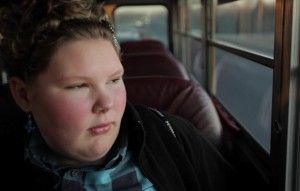 Fed Up / U.S.A. (Director: Stephanie Soechtig) — Fed Up blows the lid off everything we thought we knew about food and weight loss, revealing a 30-year campaign by the food industry, aided by the U.S. government, to mislead and confuse the American public, resulting in one of the largest health epidemics in history.
Fed Up / U.S.A. (Director: Stephanie Soechtig) — Fed Up blows the lid off everything we thought we knew about food and weight loss, revealing a 30-year campaign by the food industry, aided by the U.S. government, to mislead and confuse the American public, resulting in one of the largest health epidemics in history.
The Internet’s Own Boy: The Story of Aaron Swartz / U.S.A. (Director: Brian Knappenberger) — Programming prodigy and information activist Aaron Swartz achieved groundbreaking work in social justice and political organizing. His passion for open access ensnared him in a legal nightmare that ended with the taking of his own life at the age of 26.
Ivory Tower / U.S.A. (Director: Andrew Rossi) — As tuition spirals upward and student debt passes a trillion dollars, students and parents ask, “Is college worth it?” From the halls of Harvard to public and private colleges in financial crisis to education startups in Silicon Valley, an urgent portrait emerges of a great American institution at the breaking point.
Marmato / U.S.A. (Director: Mark Grieco) — Colombia is the center of a new global gold rush, and Marmato, a historic mining town, is the new frontier. Filmed over the course of nearly six years, Marmato chronicles how townspeople confront a Canadian mining company that wants the $20 billion in gold beneath their homes.

No No: A Dockumentary / U.S.A. (Director: Jeffrey Radice) — Dock Ellis pitched a no-hitter on LSD, then worked for decades counseling drug abusers. Dock’s soulful style defined 1970s baseball as he kept hitters honest and embarrassed the establishment. An ensemble cast of teammates, friends, and family investigate his life on the field, in the media, and out of the spotlight.
The Overnighters / U.S.A. (Director: Jesse Moss) — Desperate, broken men chase their dreams and run from their demons in the North Dakota oil fields. A local Pastor’s decision to help them has extraordinary and unexpected consequences.
Private Violence / U.S.A. (Director: Cynthia Hill) — One in four women experience violence in their homes. Have you ever asked, “Why doesn’t she just leave?” Private Violence shatters the brutality of our logic and intimately reveals the stories of two women: Deanna Walters, who transforms from victim to survivor, and Kit Gruelle, who advocates for justice.
Rich Hill / U.S.A. (Directors: Andrew Droz Palermo, Tracy Droz Tragos) — In a rural, American town, kids face heartbreaking choices, find comfort in the most fragile of family bonds, and dream of a future of possibility.
 Watchers of the Sky / U.S.A. (Director: Edet Belzberg) — Five interwoven stories of remarkable courage from Nuremberg to Rwanda, from Darfur to Syria, and from apathy to action.
Watchers of the Sky / U.S.A. (Director: Edet Belzberg) — Five interwoven stories of remarkable courage from Nuremberg to Rwanda, from Darfur to Syria, and from apathy to action.
WORLD CINEMA DRAMATIC COMPETITION
Twelve films from emerging filmmaking talents around the world offer fresh perspectives and inventive styles.
52 Tuesdays / Australia (Director: Sophie Hyde, Screenplay and story by: Matthew Cormack, Story by: Sophie Hyde) — Sixteen-year-old Billie’s reluctant path to independence is accelerated when her mother reveals plans for gender transition, and their time together becomes limited to Tuesdays. This emotionally charged story of desire, responsibility, and transformation was filmed over the course of a year—once a week, every week, only on Tuesdays. Cast: Tilda Cobham-Hervey, Del Herbert-Jane, Imogen Archer, Mario Späte, Beau Williams, Sam Althuizen. International Premiere
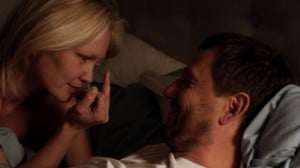
Blind / Norway, Netherlands (Director and screenwriter: Eskil Vogt) — Having recently lost her sight, Ingrid retreats to the safety of her home—a place she can feel in control, alone with her husband and her thoughts. But Ingrid’s real problems lie within, not beyond the walls of her apartment, and her deepest fears and repressed fantasies soon take over. Cast: Ellen Dorrit Petersen, Henrik Rafaelsen, Vera Vitali, Marius Kolbenstvedt. World Premiere
Difret / Ethiopia (Director and screenwriter: Zeresenay Berhane Mehari) — Meaza Ashenafi is a young lawyer who operates under the government’s radar helping women and children until one young girl’s legal case exposes everything, threatening not only her career but her survival. Cast: Meron Getnet, Tizita Hagere. World Premiere
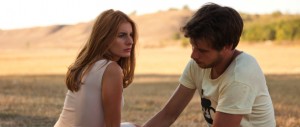 The Disobedient/ Serbia (Director and screenwriter: Mina Djukic) — Leni anxiously waits for her childhood friend Lazar, who is coming back to their hometown after years of studying abroad. After they reunite, they embark on a random bicycle trip around their childhood haunts, which will either exhaust or reinvent their relationship. Cast: Hana Selimovic, Mladen Sovilj, Minja Subota, Danijel Sike, Ivan Djordjevic. World Premiere
The Disobedient/ Serbia (Director and screenwriter: Mina Djukic) — Leni anxiously waits for her childhood friend Lazar, who is coming back to their hometown after years of studying abroad. After they reunite, they embark on a random bicycle trip around their childhood haunts, which will either exhaust or reinvent their relationship. Cast: Hana Selimovic, Mladen Sovilj, Minja Subota, Danijel Sike, Ivan Djordjevic. World Premiere
God Help the Girl / United Kingdom (Director and screenwriter: Stuart Murdoch) — This musical from Stuart Murdoch of Belle & Sebastian is about some messed up boys and girls and the music they made. Cast: Emily Browning, Olly Alexander, Hannah Murray, Pierre Boulanger, Cora Bissett. World Premiere

Liar’s Dice / India (Director and screenwriter: Geetu Mohandas) — Kamala, a young woman from the village of Chitkul, leaves her native land with her daughter to search for her missing husband. Along the journey, they encounter Nawazudin, a free-spirited army deserter with his own selfish motives who helps them reach their destination. Cast: Nawazuddin Siddiqui, Geetanjali Thapa, Manya Gupta. International Premiere
Lilting / United Kingdom (Director and screenwriter: Hong Khaou) — The world of a Chinese mother mourning the untimely death of her son is suddenly disrupted by the presence of a stranger who doesn’t speak her language. Lilting is a touching and intimate film about finding the things that bring us together. Cast: Ben Whishaw, Pei-Pei Cheng, Andrew Leung, Peter Bowles, Naomi Christie, Morven Christie. World Premiere. DAY ONE FILM
Lock Charmer (El cerrajero)/ Argentina (Director and screenwriter: Natalia Smirnoff) — Upon learning that his girlfriend is pregnant, 33-year-old locksmith Sebastian begins to have strange visions about his clients. With the help of an unlikely assistant, he sets out to use his newfound talent for his own good. Cast: Esteban Lamothe, Erica Rivas, Yosiria Huaripata. World Premiere
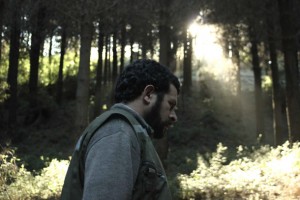
To Kill a Man / Chile, France (Director and screenwriter: Alejandro Fernández Almendras) — When Jorge, a hardworking family man who’s barely making ends meet, gets mugged by Kalule, a neighborhood delinquent, Jorge’s son decides to confront the attacker, only to get himself shot. Even though Jorge’s son nearly dies, Kalule’s sentence is minimal, heightening the friction. Cast: Daniel Candia, Daniel Antivilo, Alejandra Yañez, Ariel Mateluna. World Premiere
Viktoria / Bulgaria, Romania (Director and screenwriter: Maya Vitkova) — Although determined not to have a child in Communist Bulgaria, Boryana gives birth to Viktoria, who despite being born with no umbilical cord, is proclaimed to be the baby of the decade. But political collapse and the hardships of the new time bind mother and daughter together.Cast: Irmena Chichikova, Daria Vitkova, Kalina Vitkova, Mariana Krumova, Dimo Dimov, Georgi Spassov. World Premiere
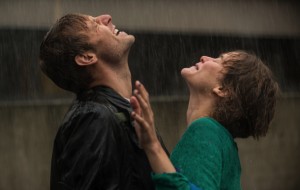
Wetlands / Germany (Director: David Wnendt, Screenwriters: Claus Falkenberg, David Wnendt, based on the novel by Charlotte Roche) — Meet Helen Memel. She likes to experiment with vegetables while masturbating and thinks that bodily hygiene is greatly overrated. She shocks those around her by speaking her mind in a most unladylike manner on topics that many people would not even dare consider. Cast: Carla Juri, Christoph Letkowski, Meret Becker, Axel Milberg, Marlen Kruse, Edgar Selge. North American Premiere
White Shadow / Italy, Germany, Tanzania (Director: Noaz Deshe, Screenwriters: Noaz Deshe, James Masson) — Alias is a young albino boy on the run. His mother has sent him away to find refuge in the city after witnessing his father’s murder. Over time, the city becomes no different than the bush: wherever Alias travels, the same rules of survival apply. Cast: Hamisi Bazili, James Gayo, Glory Mbayuwayu, Salum Abdallah. International Premiere
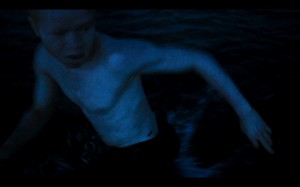
WORLD CINEMA DOCUMENTARY COMPETITION
Twelve documentaries by some of the most courageous and extraordinary international filmmakers working today.
20,000 Days On Earth / United Kingdom (Directors: Iain Forsyth & Jane Pollard) — Drama and reality combine in a fictitious 24 hours in the life of musician and international culture icon Nick Cave. With startlingly frank insights and an intimate portrayal of the artistic process, this film examines what makes us who we are and celebrates the transformative power of the creative spirit. World Premiere
Concerning Violence / Sweden, U.S.A., Denmark, Finland (Director: Göran Hugo Olsson) —Concerning Violence is based on newly discovered, powerful archival material documenting the most daring moments in the struggle for liberation in the Third World, accompanied by classic text from The Wretched of the Earth by Frantz Fanon. World Premiere
The Green Prince / Germany, Israel, United Kingdom (Director: Nadav Schirman ) — This real-life thriller tells the story of one of Israel’s prized intelligence sources, recruited to spy on his own people for more than a decade. Focusing on the complex relationship with his handler,The Green Prince is a gripping account of terror, betrayal, and unthinkable choices, along with a friendship that defies all boundaries. World Premiere. DAY ONE FILM
Happiness / France, Finland (Director: Thomas Balmès) — Peyangki is a dreamy and solitary eight-year-old monk living in Laya, a Bhutanese village perched high in the Himalayas. Soon the world will come to him: the village is about to be connected to electricity, and the first television will flicker on before Peyangki’s eyes. North American Premiere

Love Child / South Korea, U.S.A. (Director: Valerie Veatch) — In Seoul in the Republic of Korea, a young couple stands accused of neglect when “Internet addiction” in an online fantasy game costs the life of their infant daughter. Love Child documents the 2010 trial and subsequent ruling that set a global precedent in a world where virtual is the new reality.World Premiere
Mr leos caraX / France (Director: Tessa Louise-Salomé) — Mr leos caraX plunges us into the poetic and visionary world of a mysterious, solitary filmmaker who was already a cult figure from his very first film. Punctuated by interviews and previously unseen footage, this documentary is most of all a fine-tuned exploration of the poetic and visionary world of Leos Carax, alias Mr. X. World Premiere
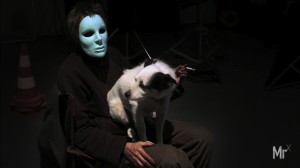
My Prairie Home / Canada (Director: Chelsea McMullan) — A poetic journey through landscapes both real and emotional, Chelsea McMullan’s documentary/musical offers an intimate portrait of transgender singer Rae Spoon, framed by stunning images of the Canadian prairies. McMullan’s imaginative visual interpretations of Spoon’s songs make this an unforgettable look at a unique Canadian artist. International Premiere
The Notorious Mr. Bout / U.S.A., Russia (Directors: Tony Gerber, Maxim Pozdorovkin ) — Viktor Bout was a war profiteer, an entrepreneur, an aviation tycoon, an arms dealer, and—strangest of all—a documentary filmmaker. The Notorious Mr. Bout is the ultimate rags-to-riches-to-prison memoir, documented by the last man you’d expect to be holding the camera. World Premiere
Return to Homs / Syria, Germany (Director: Talal Derki) — Basset Sarout, the 19-year-old national football team goalkeeper, becomes a demonstration leader and singer, and then a fighter. Ossama, a 24-year-old renowned citizen cameraman, is critical, a pacifist, and ironic until he is detained by the regime’s security forces. North American Premiere
SEPIDEH – Reaching for the Stars / Denmark (Director: Berit Madsen) — Sepideh wants to become an astronaut. As a young Iranian woman, she knows it’s dangerous to challenge traditions and expectations. Still, Sepideh holds on to her dream. She knows a tough battle is ahead, a battle that only seems possible to win once she seeks help from an unexpected someone. North American Premiere
We Come as Friends / France, Austria (Director: Hubert Sauper) — We Come as Friends is a modern odyssey, a science fiction–like journey in a tiny homemade flying machine into the heart of Africa. At the moment when the Sudan, Africa’s biggest country, is being divided into two nations, a “civilizing” pathology transcends the headlines—colonialism, imperialism, and yet-another holy war over resources. World Premiere
Web Junkie / Israel (Directors: Shosh Shlam, Hilla Medalia) — China is the first country to label “Internet addiction” a clinical disorder. With extraordinary intimacy, Web Junkieinvestigates a Beijing rehab center where Chinese teenagers are deprogrammed, focusing on three teens, their parents and the health professionals determined to help them kick their habit. World Premiere
SUNDANCE FILM FESTIVAL TAKES PLACE IN PARK CITY, UTAH FROM 9 UNTIL 26 JANUARY 2014.
THE WINNERS OF THE 2014 SUNDANCE FILM FESTIVAL
US GRAND JURY PRIZE; DRAMATIC – WHIPLASH
US GRAND JURY PRIZE: DOCUMENTARY – RICH HILL
WORLD CINEMA GRAND JURY PRIZE: DRAMATIC – TO KILL A MAN
WORLD CINEMA GRAND JURY PRIZE: DOCUMENTARY – RETURN TO HOMS
AUDIENCE AWARD US DRAMATIC – WHIPLASH
AUDIENCE AWARD US DOCUMENTARY – ALIVE INSIDE : A STORY OF MUSIC & MEMORY
AUDIENCE AWARD: WORLD CINEMA; DRAMATIC – DIFRET
AUDIENCE AWARD: WORLD CINEMA: DOCUMENTARY – THE GREEN PRINCE
AUDIENCE AWARD: BEST OF NEXT – IMPERIAL DREAMS


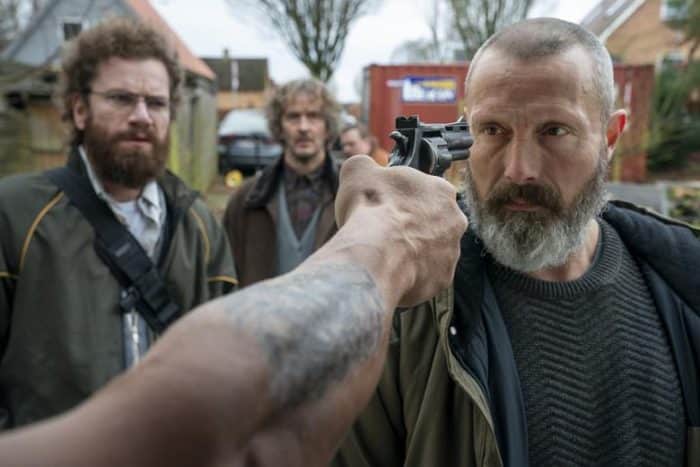
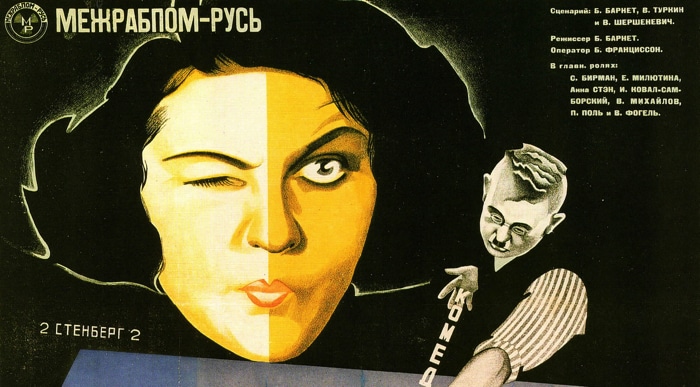
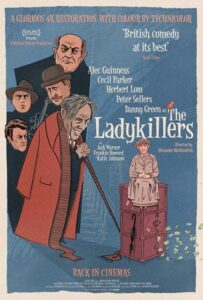
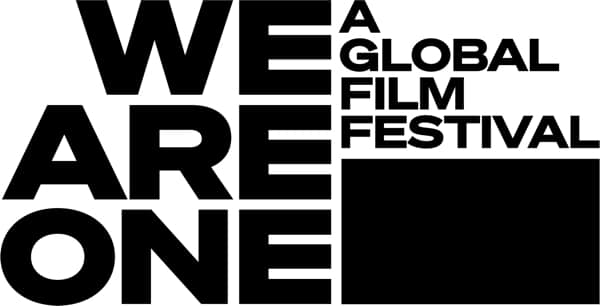
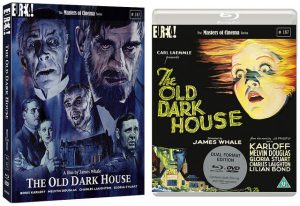 Dir: James Whale | Wri: Benn Levy/J B Priestley | Cast: Boris Karloff| Charles Laughton | Eva Moore | Gloria Stuart | Melvyn Douglas| Raymond Massey | Horror / Comedy |US 75′
Dir: James Whale | Wri: Benn Levy/J B Priestley | Cast: Boris Karloff| Charles Laughton | Eva Moore | Gloria Stuart | Melvyn Douglas| Raymond Massey | Horror / Comedy |US 75′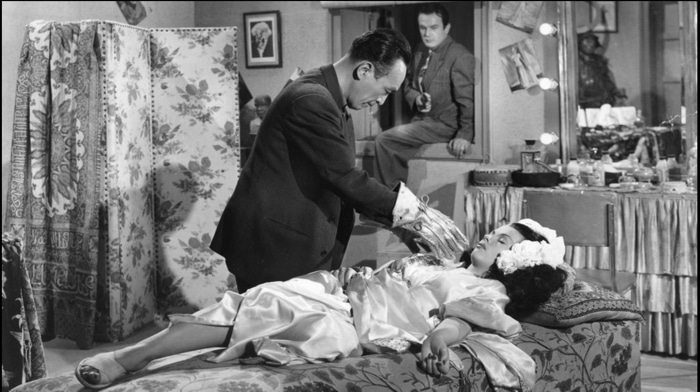
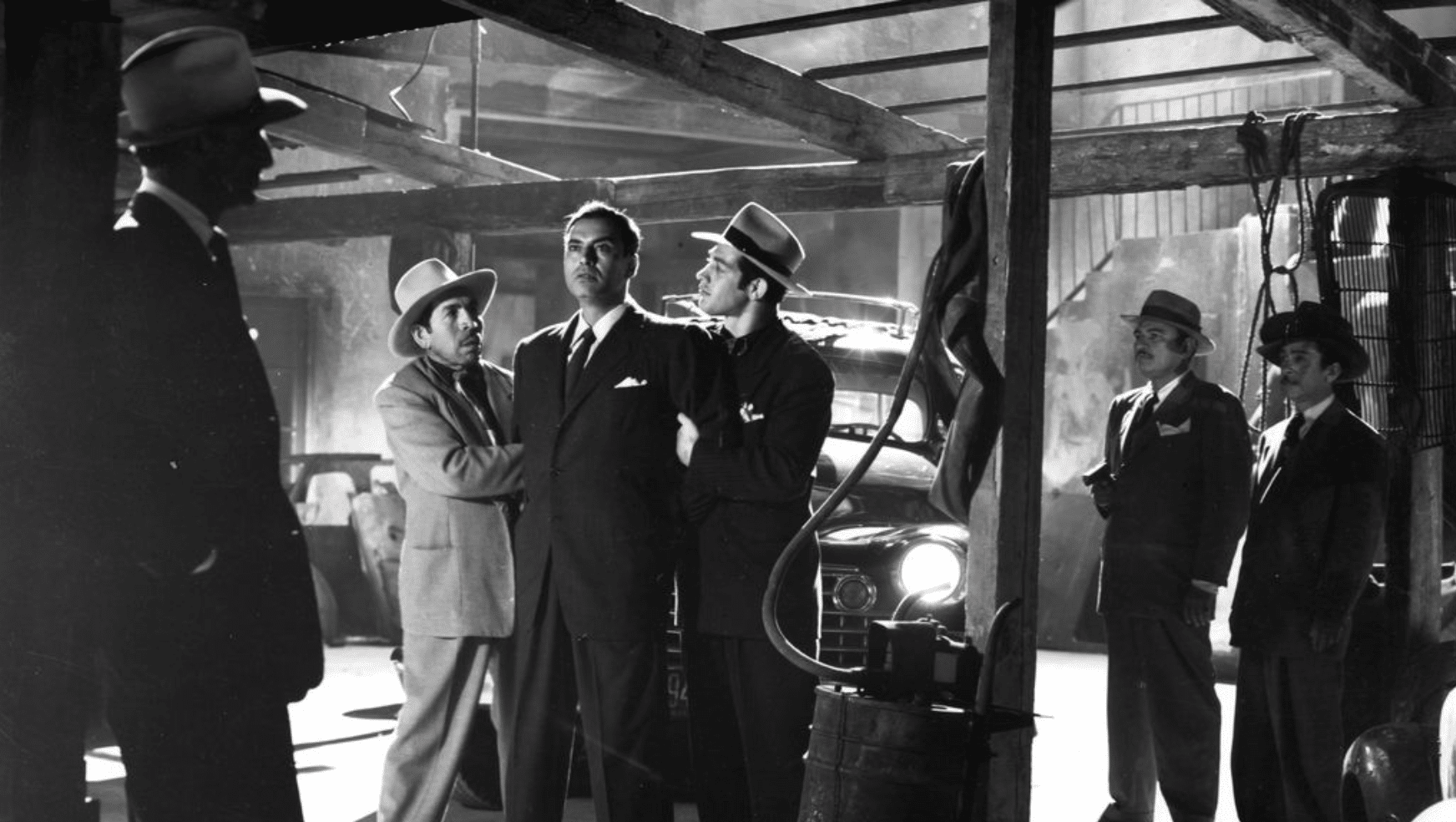
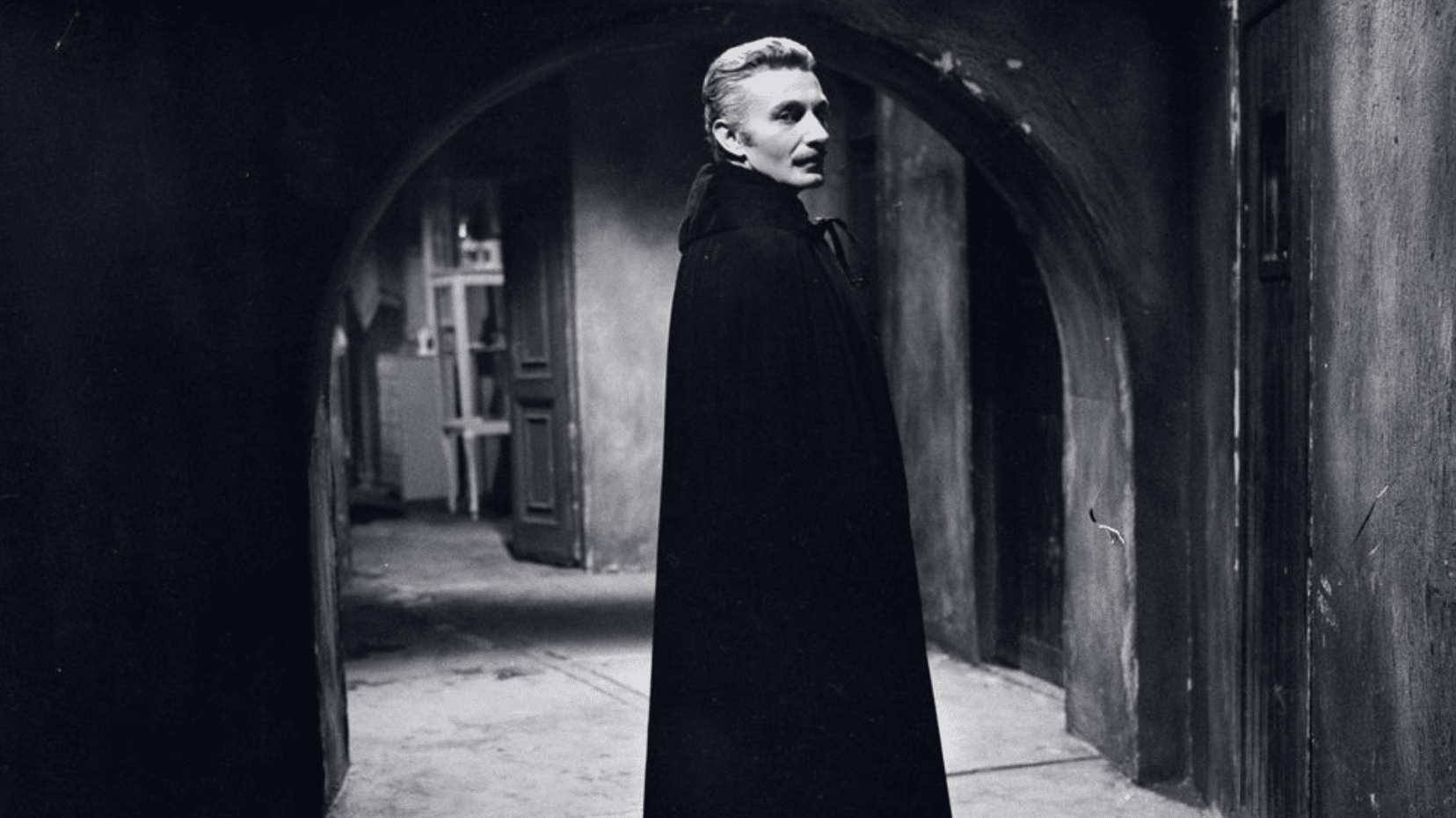
 Celebrating its 34th year the Midnight Sun Film Festival presents a niche selection of this year’s features and documentaries, along with musical evenings and master classes in its luminous setting of Sodankylä, Finnish Lapland.
Celebrating its 34th year the Midnight Sun Film Festival presents a niche selection of this year’s features and documentaries, along with musical evenings and master classes in its luminous setting of Sodankylä, Finnish Lapland.  Masterclasses and specialties
Masterclasses and specialties
 LATE NIGHT U.S.A. (Director: Nisha Ganatra, Screenwriter: Mindy Kaling) – Legendary late-night talk show host’s world is turned upside down when she hires her only female staff writer. Originally intended to smooth over diversity concerns, her decision has unexpectedly hilarious consequences as the two women separated by culture and generation are united by their love of a biting punchline.
LATE NIGHT U.S.A. (Director: Nisha Ganatra, Screenwriter: Mindy Kaling) – Legendary late-night talk show host’s world is turned upside down when she hires her only female staff writer. Originally intended to smooth over diversity concerns, her decision has unexpectedly hilarious consequences as the two women separated by culture and generation are united by their love of a biting punchline. THE FAREWELL U.S.A., China (Director/Screenwriter: Lulu Wang) – A headstrong Chinese-American woman returns to China when her beloved grandmother is given a terminal diagnosis. Billi struggles with her family’s decision to keep grandma in the dark about her own illness as they all stage an impromptu wedding to see grandma one last time.
THE FAREWELL U.S.A., China (Director/Screenwriter: Lulu Wang) – A headstrong Chinese-American woman returns to China when her beloved grandmother is given a terminal diagnosis. Billi struggles with her family’s decision to keep grandma in the dark about her own illness as they all stage an impromptu wedding to see grandma one last time. CORPORATE ANIMALS U.S.A. (Director: Patrick Brice, Screenwriter: Sam Bain) – Disaster strikes when the egotistical CEO of an edible cutlery company leads her long-suffering staff on a corporate team- building trip in New Mexico. Trapped underground, this mismatched and disgruntled group must pull together to survive. CAST: Demi Moore, Ed Helms, Jessica Williams, Karan Soni
CORPORATE ANIMALS U.S.A. (Director: Patrick Brice, Screenwriter: Sam Bain) – Disaster strikes when the egotistical CEO of an edible cutlery company leads her long-suffering staff on a corporate team- building trip in New Mexico. Trapped underground, this mismatched and disgruntled group must pull together to survive. CAST: Demi Moore, Ed Helms, Jessica Williams, Karan Soni THE BRINK U.S.A. (Director: Alison Klayman) – Now unconstrained by an official White House post, Steve Bannon is free to peddle influence as a perceived kingmaker with a direct line to the President. As self-appointed leader of the “populist movement,” he travels around the U.S. and the world spreading his hard-line anti-immigration message
THE BRINK U.S.A. (Director: Alison Klayman) – Now unconstrained by an official White House post, Steve Bannon is free to peddle influence as a perceived kingmaker with a direct line to the President. As self-appointed leader of the “populist movement,” he travels around the U.S. and the world spreading his hard-line anti-immigration message Dir: Richard Lester | Writer: Charles Wood | Cast: John Lennon, Roy Kinnear, Michael Crawford, Michael Hordern, Jack MacGowran | UK Comedy 109′
Dir: Richard Lester | Writer: Charles Wood | Cast: John Lennon, Roy Kinnear, Michael Crawford, Michael Hordern, Jack MacGowran | UK Comedy 109′ The four Palme d’Or hopefuls directed by women are— Mati Diop’s Atlantique (she was memorable in
The four Palme d’Or hopefuls directed by women are— Mati Diop’s Atlantique (she was memorable in Jury
Jury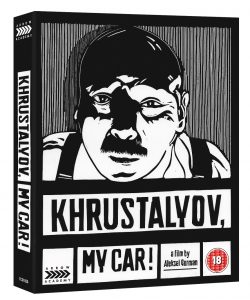 Dir: Aleksei German | Wri: Joseph Brodsky | Comedy Drama USSR, 147′
Dir: Aleksei German | Wri: Joseph Brodsky | Comedy Drama USSR, 147′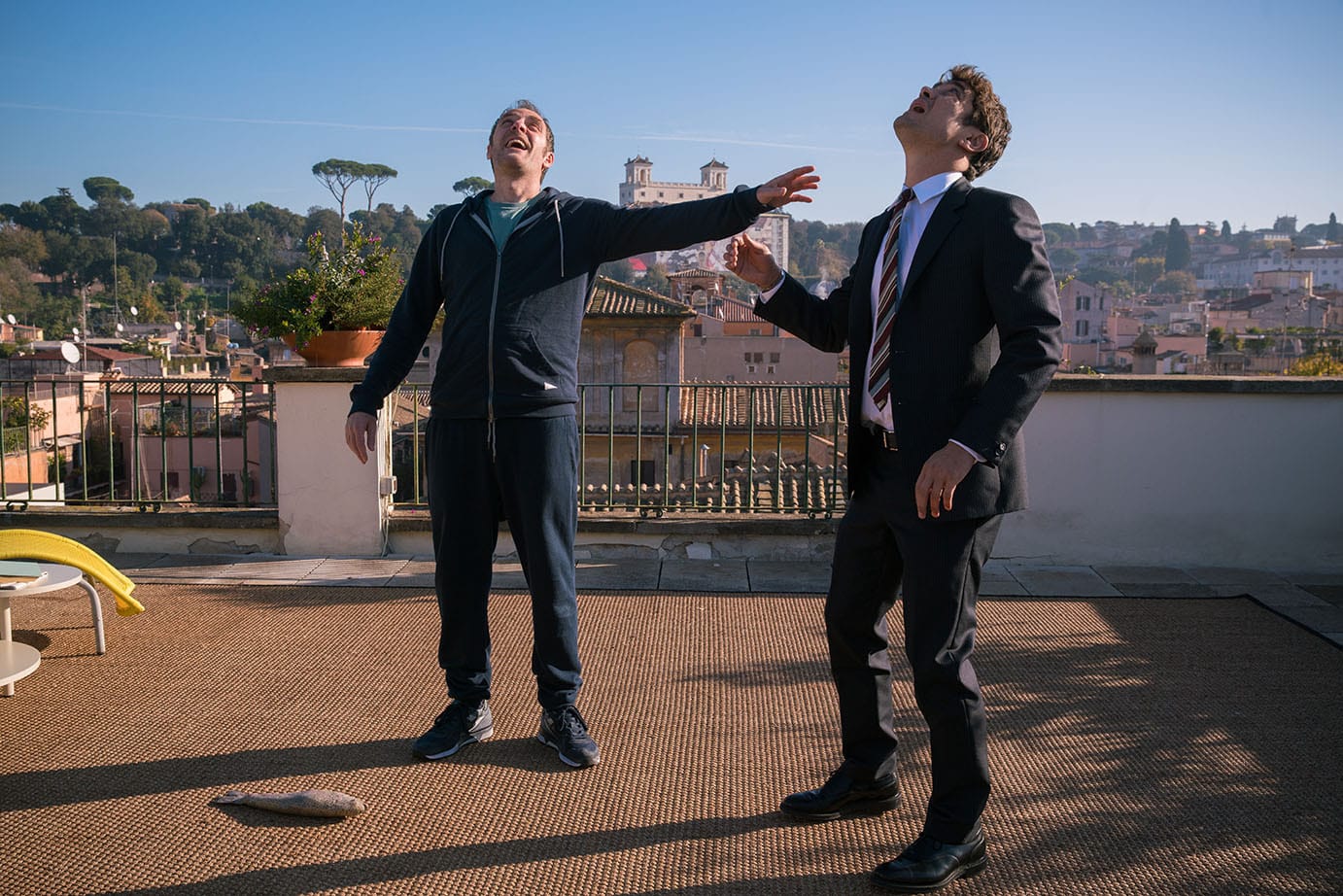
 THE GUEST (L’Ospite) ****
THE GUEST (L’Ospite) ****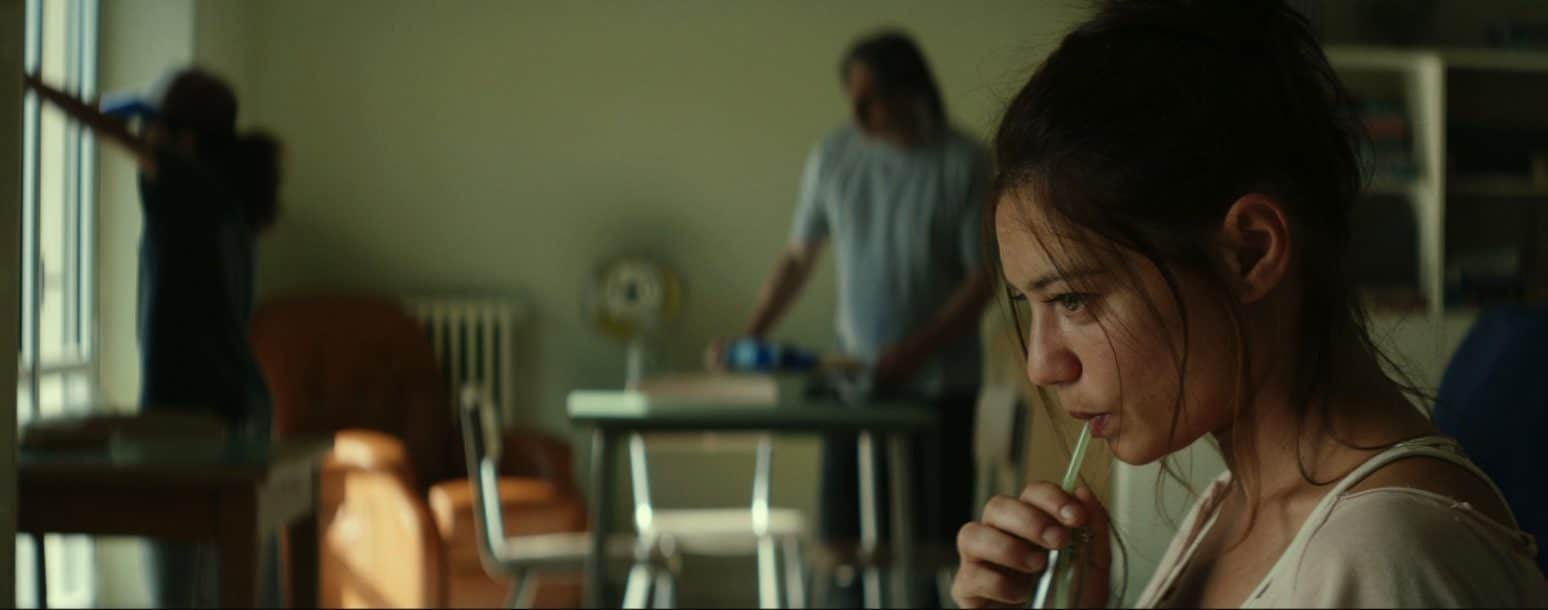


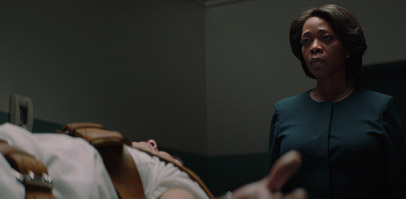
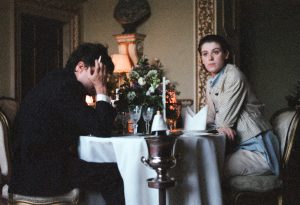


 There is no filmmaker like Edgar Pêra (b.1960). His work may be an acquired taste but it is always inventive and Avant-garde referencing his heroes in creative ways and keeping the past alive. The Portuguese auteur often pays tribute to Dziga Vertov, Branquinho da Fonseca and Fernando Pessoa – but always in an ingenious way – transforming their ideas into bizarre and refreshing features, some will screen in a retrospective at the
There is no filmmaker like Edgar Pêra (b.1960). His work may be an acquired taste but it is always inventive and Avant-garde referencing his heroes in creative ways and keeping the past alive. The Portuguese auteur often pays tribute to Dziga Vertov, Branquinho da Fonseca and Fernando Pessoa – but always in an ingenious way – transforming their ideas into bizarre and refreshing features, some will screen in a retrospective at the  Edgar Henrique Clemente Pêra first studied psychology, but soon realised his vocation in Film at the Portuguese National Conservatory, currently
Edgar Henrique Clemente Pêra first studied psychology, but soon realised his vocation in Film at the Portuguese National Conservatory, currently 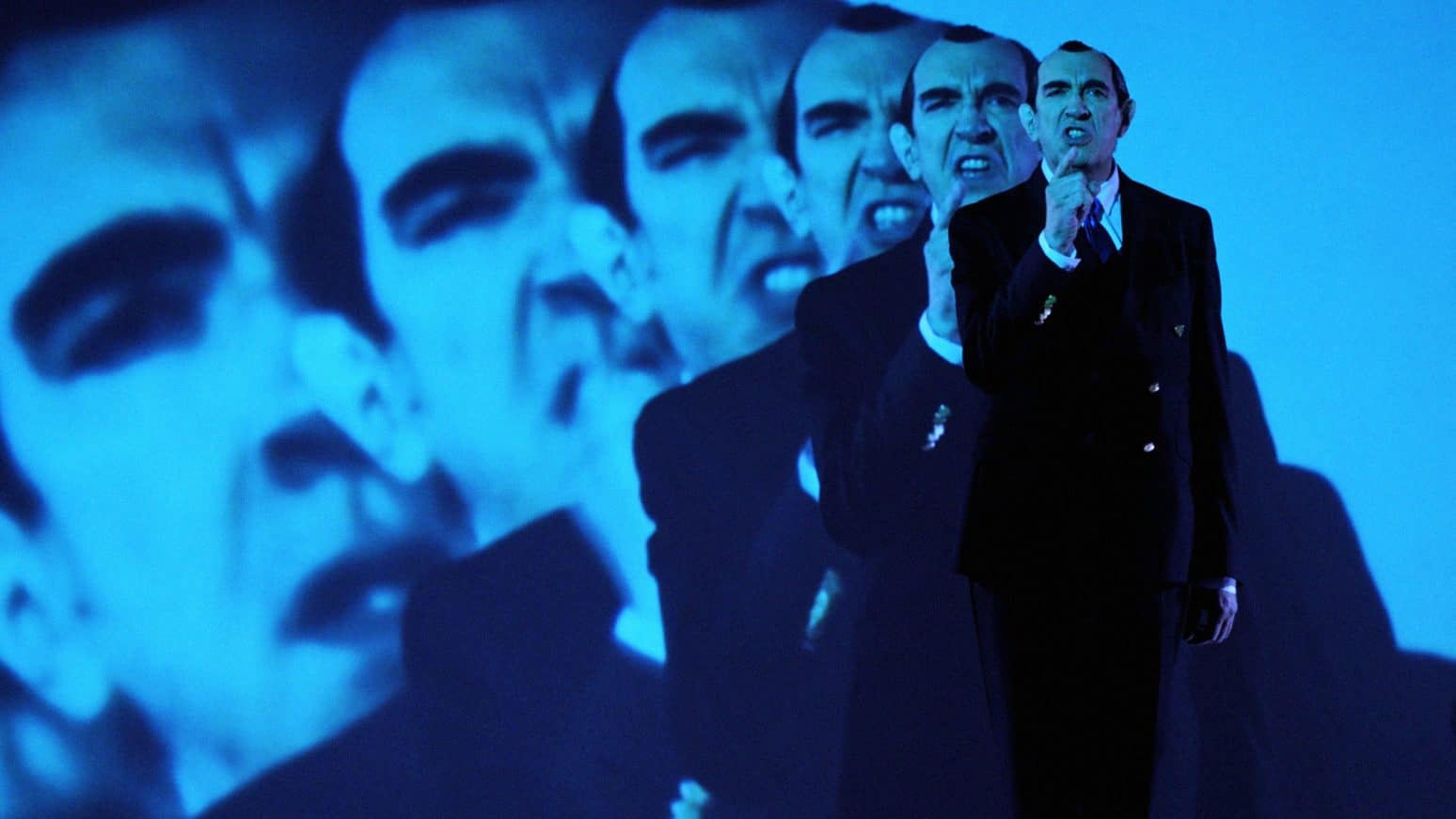
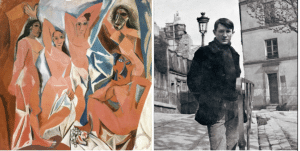 The Young Picasso
The Young Picasso  Dir: Hajooj Kuka | Cast: Abdallah Ahur, Ganja Chakado, Ekram Marcus, Kamal Ramadan | Drama | 78’
Dir: Hajooj Kuka | Cast: Abdallah Ahur, Ganja Chakado, Ekram Marcus, Kamal Ramadan | Drama | 78’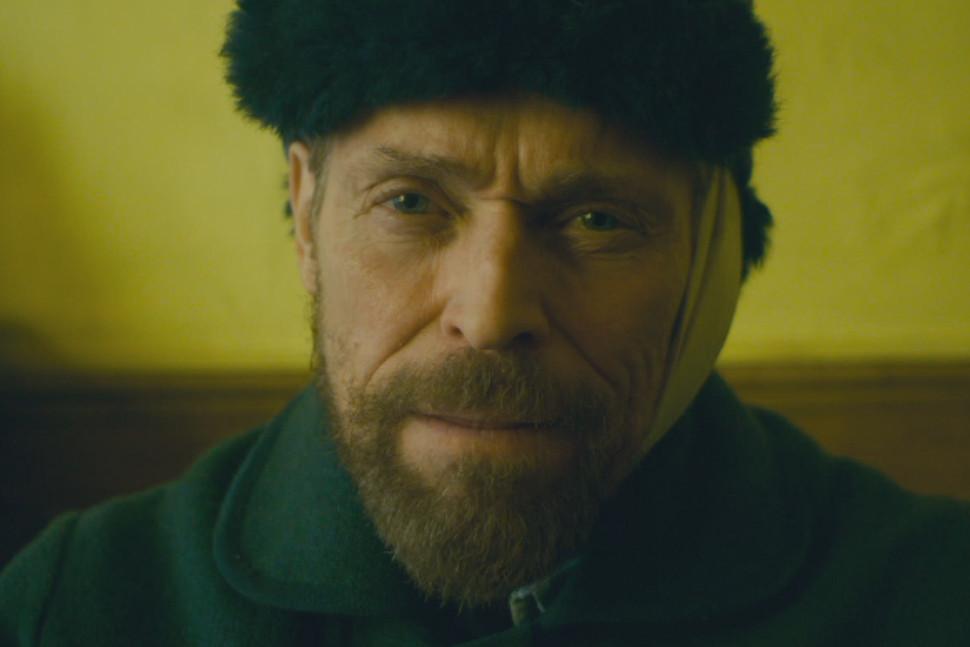
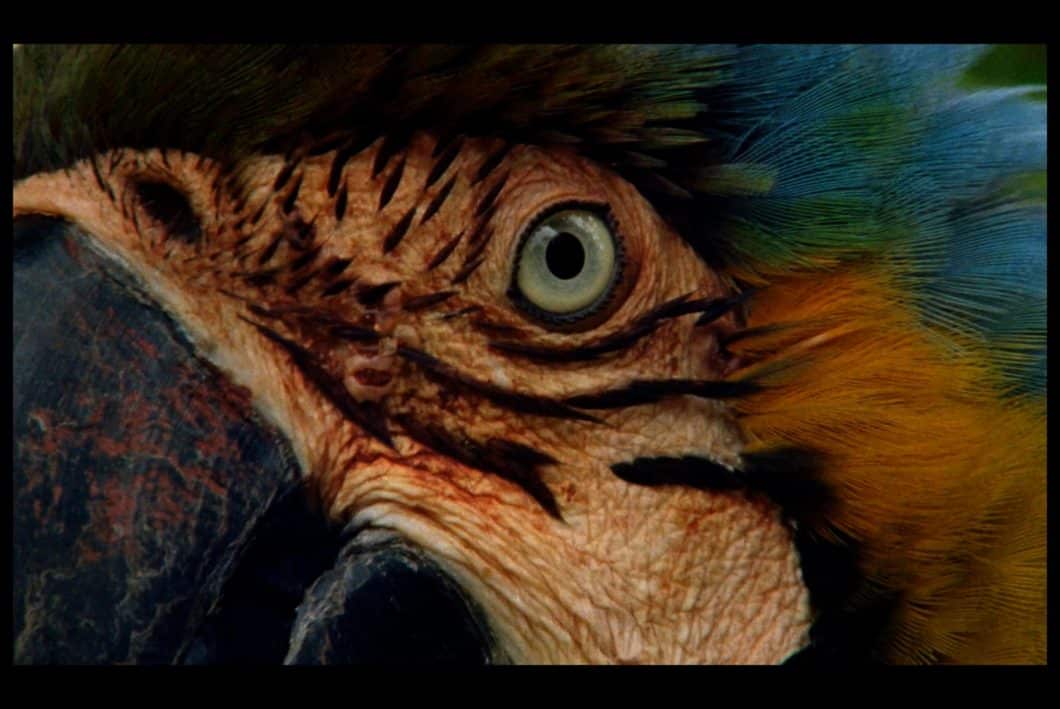
 Russian Film Week is back for the third year running. From 25 November to 2 December the event will take place in London at BFI Southbank, Regent Street Cinema, Curzon Mayfair and Empire Leicester Square before heading to Edinburgh, Cambridge and Oxford.
Russian Film Week is back for the third year running. From 25 November to 2 December the event will take place in London at BFI Southbank, Regent Street Cinema, Curzon Mayfair and Empire Leicester Square before heading to Edinburgh, Cambridge and Oxford. Mabel Normand (1892-1930) had a short but eventful life: she was a pioneer of Silent Movies as a star actress (in 220) and director (in 10) between 1910 and 1927. Working alongside Charlie Chaplin, she ended up saving his career at Mack Sennetts’ Keystone – the producer wanted to sack him. Normand also developed Chaplin’s ‘tramp’ screen personality. But she was, more or less, accidentally involved in the murder of William Desmond Taylor and the shooting of Courtland S. Dines, as well as being a friend (and co-star) of ‘Fatty’ Arbuckle, whose life was a series of scandals. Normand suffered for a long time from TB, interrupting her career and leading to her early death at the age of 37.
Mabel Normand (1892-1930) had a short but eventful life: she was a pioneer of Silent Movies as a star actress (in 220) and director (in 10) between 1910 and 1927. Working alongside Charlie Chaplin, she ended up saving his career at Mack Sennetts’ Keystone – the producer wanted to sack him. Normand also developed Chaplin’s ‘tramp’ screen personality. But she was, more or less, accidentally involved in the murder of William Desmond Taylor and the shooting of Courtland S. Dines, as well as being a friend (and co-star) of ‘Fatty’ Arbuckle, whose life was a series of scandals. Normand suffered for a long time from TB, interrupting her career and leading to her early death at the age of 37. The Closing Night Gala, Eric Barbier’s Promise At Dawn will take place on 22 November at Curzon Mayfair and stars Pierre Niney with Charlotte Gainsbourg (Best Actress Cesar Nomination) playing the overbearing Jewish mother in a powerful adaptation of Romain Gary’s memoir.
The Closing Night Gala, Eric Barbier’s Promise At Dawn will take place on 22 November at Curzon Mayfair and stars Pierre Niney with Charlotte Gainsbourg (Best Actress Cesar Nomination) playing the overbearing Jewish mother in a powerful adaptation of Romain Gary’s memoir.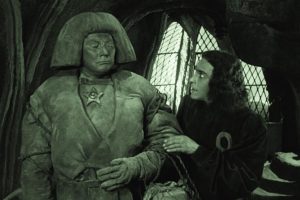 Alberto Barbera has announced a stunning line-up of highly anticipated new features and documentaries in celebration of this year’s 71st edition of Venice Film Festival which takes place on the Lido from 28 August until 8 September 2018. 30% of this year’s films are made by women which sounds more positive. Obviously the festival can only programme films offered for screening.
Alberto Barbera has announced a stunning line-up of highly anticipated new features and documentaries in celebration of this year’s 71st edition of Venice Film Festival which takes place on the Lido from 28 August until 8 September 2018. 30% of this year’s films are made by women which sounds more positive. Obviously the festival can only programme films offered for screening.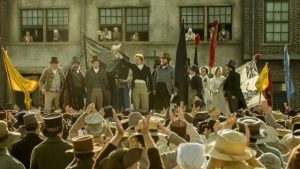 The festival kicks off on the 28th with a remastered 1920 version of THE GOLEM – HOW HE CAME TO BE (ab0ve) complete with musical accompaniment. This year’s festival opening film is Damien Chazelle’s biopic of Neil Armstrong FIRST MAN. There are 21 features and documentaries in the main competition which boasts the latest films from Olivier Assayas (a publishing drama DOUBLE LIVES stars Juliette Binoche), Jacques Audiard (THE SISTERS BROTHERS), Joel and Ethan Coen’s 6-part Western THE BALLAD OF BUSTER SCRUGGS, Brady Corbet’smusical drama VOX LUX; Alfonso Cuaron with ROMA; Luca Guadagnino’s SUSPIRIA sees Tilda Swinton playing 3 parts; Mike Leigh (PETERLOO), Yorgos Lanthimos with an 18th drama entitled THE FAVOURITE; Carlos Reygadas joins from his usual Cannes slot; and Julian Schnabel will present AT ETERNITY’S GATE a drama attempting to get inside the head of Vincent Van Gogh. Not to mention Laszlo Nemes’ Budapest WW1 drama NAPSZÁLLTA, a much awaited second feature and follow up to his Oscar winning Son of Saul.
The festival kicks off on the 28th with a remastered 1920 version of THE GOLEM – HOW HE CAME TO BE (ab0ve) complete with musical accompaniment. This year’s festival opening film is Damien Chazelle’s biopic of Neil Armstrong FIRST MAN. There are 21 features and documentaries in the main competition which boasts the latest films from Olivier Assayas (a publishing drama DOUBLE LIVES stars Juliette Binoche), Jacques Audiard (THE SISTERS BROTHERS), Joel and Ethan Coen’s 6-part Western THE BALLAD OF BUSTER SCRUGGS, Brady Corbet’smusical drama VOX LUX; Alfonso Cuaron with ROMA; Luca Guadagnino’s SUSPIRIA sees Tilda Swinton playing 3 parts; Mike Leigh (PETERLOO), Yorgos Lanthimos with an 18th drama entitled THE FAVOURITE; Carlos Reygadas joins from his usual Cannes slot; and Julian Schnabel will present AT ETERNITY’S GATE a drama attempting to get inside the head of Vincent Van Gogh. Not to mention Laszlo Nemes’ Budapest WW1 drama NAPSZÁLLTA, a much awaited second feature and follow up to his Oscar winning Son of Saul. The out of competition selection is equally exciting and thematically rich. There is Bradley Cooper’s directing debut A STAR IS BORN (left), Charles Manson-themed CHARLIE SAYS from Mary Herron; Amos Gitai’s A TRAMWAY IN JERUSALEM, and Zhang Yimou’s YING (SHADOW). And those whose enjoyed S Craig Zahler’s dynamite Brawl in Cell Block 99 will be pleased to hear that his DRAGGED ACROSS CONCRETE adds Mel Gibson to the previous cast of Jennifer Carpenter and Vince Vaughn. There will be an historic epic set in the time of the French Revolution: UN PEUPLE ET SON ROI features Gaspart Ulliel and Denis Lavant (who also stars in Rick Alverson’s Golden Lion hopeful THE MOUNTAIN) , and Amir Naderi’s MAGIC LANTERN which has the wonderful English talents of Jacqueline Bisset. And talking of England, Mike Leigh’s much gloated over historical epic PETERLOO finally makes it to the competition line-up
The out of competition selection is equally exciting and thematically rich. There is Bradley Cooper’s directing debut A STAR IS BORN (left), Charles Manson-themed CHARLIE SAYS from Mary Herron; Amos Gitai’s A TRAMWAY IN JERUSALEM, and Zhang Yimou’s YING (SHADOW). And those whose enjoyed S Craig Zahler’s dynamite Brawl in Cell Block 99 will be pleased to hear that his DRAGGED ACROSS CONCRETE adds Mel Gibson to the previous cast of Jennifer Carpenter and Vince Vaughn. There will be an historic epic set in the time of the French Revolution: UN PEUPLE ET SON ROI features Gaspart Ulliel and Denis Lavant (who also stars in Rick Alverson’s Golden Lion hopeful THE MOUNTAIN) , and Amir Naderi’s MAGIC LANTERN which has the wonderful English talents of Jacqueline Bisset. And talking of England, Mike Leigh’s much gloated over historical epic PETERLOO finally makes it to the competition line-up Vagabond
Vagabond
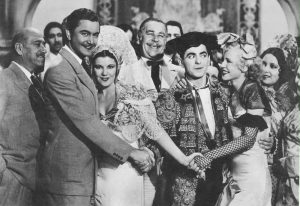
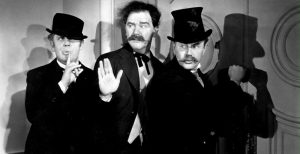
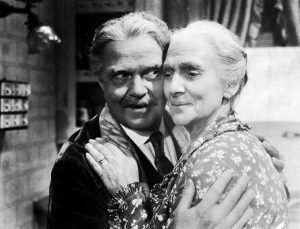
 Artistic director Carlo Chatrian has unveiled his final line-up with an exciting eclectic selection of titles spanning mainstream and arthouse fare due to run at the picturesque Lake Maggiore setting from the 1st until 11th August 2018.
Artistic director Carlo Chatrian has unveiled his final line-up with an exciting eclectic selection of titles spanning mainstream and arthouse fare due to run at the picturesque Lake Maggiore setting from the 1st until 11th August 2018.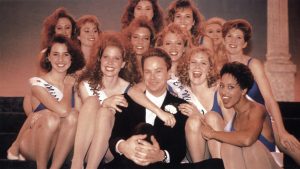 This early success led to various roles in TV and a film career that flourished with his performance in Ron Shelton’s popular sports film Bull Durham (1988). Proof of his undeniable talent followed with his role in the drama Jacob ’s Ladder (1990), and Robbins went on to work with legendary indie director Robert Altman – taking the sardonic lead role in Altman’s The Player (1992) which won him a Golden Globe and the Best Actor at the Cannes Film Festival.
This early success led to various roles in TV and a film career that flourished with his performance in Ron Shelton’s popular sports film Bull Durham (1988). Proof of his undeniable talent followed with his role in the drama Jacob ’s Ladder (1990), and Robbins went on to work with legendary indie director Robert Altman – taking the sardonic lead role in Altman’s The Player (1992) which won him a Golden Globe and the Best Actor at the Cannes Film Festival.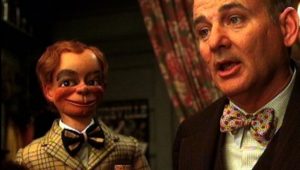 There followed appearances in the Coen brothers’ The Hudsucker Proxy (1994), another outing with Robert Altman (the comedy from the world of fashion Prêt-à-Porter, 1994), and his work with Frank Darabont on The Shawshank Redemption (1994), which was nominated for seven Oscars. In 1996 Dead Man Walking earned him an Oscar nomination for best director, while his partner Susan Sarandon won an Oscar for best actress. His next auteur outing, Cradle Will Rock (1999) above, which premiered at Cannes, explored the relationship between the individual artist and society during a tumultuous time in the U.S. though this time in another era. As with Dead Man Walking, Robbins produced, and the music was written by his brother David.
There followed appearances in the Coen brothers’ The Hudsucker Proxy (1994), another outing with Robert Altman (the comedy from the world of fashion Prêt-à-Porter, 1994), and his work with Frank Darabont on The Shawshank Redemption (1994), which was nominated for seven Oscars. In 1996 Dead Man Walking earned him an Oscar nomination for best director, while his partner Susan Sarandon won an Oscar for best actress. His next auteur outing, Cradle Will Rock (1999) above, which premiered at Cannes, explored the relationship between the individual artist and society during a tumultuous time in the U.S. though this time in another era. As with Dead Man Walking, Robbins produced, and the music was written by his brother David.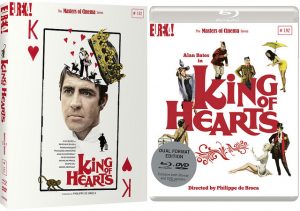
 Festival bigwig Thierry Frémaux warned us to expect shocks and surprises from this year’s festival line-up, distilled down from over 1900 features to an intriguing list of 18 – and there will be a few more additions before May 8th. The main question is “where are the stars?” or better still “Where is Isabelle Huppert” doyenne of the Croisette – up to now. The answer seems to be that they are on the jury –
Festival bigwig Thierry Frémaux warned us to expect shocks and surprises from this year’s festival line-up, distilled down from over 1900 features to an intriguing list of 18 – and there will be a few more additions before May 8th. The main question is “where are the stars?” or better still “Where is Isabelle Huppert” doyenne of the Croisette – up to now. The answer seems to be that they are on the jury –  An Evening With Beverly Luff Linn (Director: Jim Hosking,
An Evening With Beverly Luff Linn (Director: Jim Hosking, Eighth Grade (Director/Screenwriter: Bo Burnham) – Thirteen-year-old Kayla endures the tidal wave of contemporary suburban adolescence as she makes her way through the last week of middle school — the end of her thus far disastrous eighth grade year — before she begins high school.
Eighth Grade (Director/Screenwriter: Bo Burnham) – Thirteen-year-old Kayla endures the tidal wave of contemporary suburban adolescence as she makes her way through the last week of middle school — the end of her thus far disastrous eighth grade year — before she begins high school. Generation Wealth (Director: Lauren Greenfield) – Lauren Greenfield’s postcard from the edge of the American Empire captures a portrait of a materialistic, image-obsessed culture. Simultaneously personal journey and historical essay, the film bears witness to the global boom–bust economy, the corrupted American Dream and the human costs of late stage capitalism, narcissism and greed.
Generation Wealth (Director: Lauren Greenfield) – Lauren Greenfield’s postcard from the edge of the American Empire captures a portrait of a materialistic, image-obsessed culture. Simultaneously personal journey and historical essay, the film bears witness to the global boom–bust economy, the corrupted American Dream and the human costs of late stage capitalism, narcissism and greed. Half the Picture (Director: Amy Adrion) – At a pivotal moment for gender equality in Hollywood, successful women directors tell the stories of their art, lives and careers. Having endured a long history of systemic discrimination, women filmmakers may be getting the first glimpse of a future that values their voices equally.
Half the Picture (Director: Amy Adrion) – At a pivotal moment for gender equality in Hollywood, successful women directors tell the stories of their art, lives and careers. Having endured a long history of systemic discrimination, women filmmakers may be getting the first glimpse of a future that values their voices equally. Hereditary (Director/Screenwriter: Ari Aster) – After their reclusive grandmother passes away, the Graham family tries to escape the dark fate they’ve inherited.
Hereditary (Director/Screenwriter: Ari Aster) – After their reclusive grandmother passes away, the Graham family tries to escape the dark fate they’ve inherited. Leave No Trace (Director: Debra Granik, Screenwriters: Debra Granik, Anne Rosellini) – A father and daughter live a perfect but mysterious existence in Forest Park, a beautiful nature reserve near Portland, Oregon, rarely making contact with the world. A small mistake tips them off to authorities sending them on an increasingly erratic journey in search of a place to call their own.
Leave No Trace (Director: Debra Granik, Screenwriters: Debra Granik, Anne Rosellini) – A father and daughter live a perfect but mysterious existence in Forest Park, a beautiful nature reserve near Portland, Oregon, rarely making contact with the world. A small mistake tips them off to authorities sending them on an increasingly erratic journey in search of a place to call their own. The Miseducation of Cameron Post (Director: Desiree Akhavan, Screenwriters: Desiree Akhavan, Cecilia Frugiuele) –1993: after being caught having sex with the prom queen, a girl is forced into a gay conversion therapy center. Based on Emily Danforth’s acclaimed and controversial coming-of-age novel.
The Miseducation of Cameron Post (Director: Desiree Akhavan, Screenwriters: Desiree Akhavan, Cecilia Frugiuele) –1993: after being caught having sex with the prom queen, a girl is forced into a gay conversion therapy center. Based on Emily Danforth’s acclaimed and controversial coming-of-age novel. Never Goin’ Back (Director/Screenwriter: Augustine Frizzell) –Jessie and Angela, high school dropout BFFs, are taking a week off to chill at the beach. Too bad their house got robbed, rent’s due, they’re about to get fired and they’re broke. Now they’ve gotta avoid eviction, stay out of jail and get to the beach, no matter what!!!
Never Goin’ Back (Director/Screenwriter: Augustine Frizzell) –Jessie and Angela, high school dropout BFFs, are taking a week off to chill at the beach. Too bad their house got robbed, rent’s due, they’re about to get fired and they’re broke. Now they’ve gotta avoid eviction, stay out of jail and get to the beach, no matter what!!! Skate Kitchen (Director: Crystal Moselle, Screenwriters: Crystal Moselle, Ashlihan Unaldi) – Camille’s life as a lonely suburban teenager changes dramatically when she befriends a group of girl skateboarders. As she journeys deeper into this raw New York City subculture, she begins to understand the true meaning of friendship as well as her inner self.
Skate Kitchen (Director: Crystal Moselle, Screenwriters: Crystal Moselle, Ashlihan Unaldi) – Camille’s life as a lonely suburban teenager changes dramatically when she befriends a group of girl skateboarders. As she journeys deeper into this raw New York City subculture, she begins to understand the true meaning of friendship as well as her inner self. The Tale (Director/Screenwriter: Jennifer Fox) – An investigation into one woman’s memory as she’s forced to re-examine her first sexual relationship and the stories we tell ourselves in order to survive; based on the filmmaker’s own story.
The Tale (Director/Screenwriter: Jennifer Fox) – An investigation into one woman’s memory as she’s forced to re-examine her first sexual relationship and the stories we tell ourselves in order to survive; based on the filmmaker’s own story. Yardie (Director: Idris Elba, Screenwriters: Brock Norman Brock, Martin Stellman) – Jamaica, 1973. When a young boy witnesses his brother’s assassination, a powerful Don gives him a home. Ten years later he is sent on a mission to London. He reunites with his girlfriend and their daughter, but then the past catches up with them. Based on Victor Headley’s novel.
Yardie (Director: Idris Elba, Screenwriters: Brock Norman Brock, Martin Stellman) – Jamaica, 1973. When a young boy witnesses his brother’s assassination, a powerful Don gives him a home. Ten years later he is sent on a mission to London. He reunites with his girlfriend and their daughter, but then the past catches up with them. Based on Victor Headley’s novel. London is the setting for the UK’s longest running LGBTQ film event which began in 1986 as Gay’s Own Pictures. Since then it has also become the largest LGBTQ film event in the UK with this year’s edition boasting 56 feature films, an expanded industry programme, selected films on BFI Player VOD service, and a series of special events and archive screenings. With its partner fiveFilms4freedom it offers LGBT short films for free across the world and promoted through the British Council’s global networks.
London is the setting for the UK’s longest running LGBTQ film event which began in 1986 as Gay’s Own Pictures. Since then it has also become the largest LGBTQ film event in the UK with this year’s edition boasting 56 feature films, an expanded industry programme, selected films on BFI Player VOD service, and a series of special events and archive screenings. With its partner fiveFilms4freedom it offers LGBT short films for free across the world and promoted through the British Council’s global networks. Opening the festival this year is Talit Shalom-Ezer’s poignant lesbian love story MY DAYS OF MERCY written by Joe Barton, who scripted TV’s Troy, and featuring Kate Mara and Ellen Page. The European premiere of moral fable POSTCARDS FROM LONDON is the closing gala, telling a revealing story of a suburban teenager (Harris Dickinson) arriving in the West End where he falls in with a gang of high class male escorts ‘The Raconteurs’. Set in a vibrant, neon-lit, imaginary vision of Soho, the film works as a beautifully shot homage to the spirit of Derek Jarman and a celebration of the homo-erotic in Baroque art, and is Steve McLean’s long-awaited follow-up to his 1994 Sundance and Indie Spirit-nominated drama POSTCARDS FROM AMERICA. This year ‘Second Chance Sunday offers the opportunity to watch the on-demand repeat screenings of the audience festival favourites.
Opening the festival this year is Talit Shalom-Ezer’s poignant lesbian love story MY DAYS OF MERCY written by Joe Barton, who scripted TV’s Troy, and featuring Kate Mara and Ellen Page. The European premiere of moral fable POSTCARDS FROM LONDON is the closing gala, telling a revealing story of a suburban teenager (Harris Dickinson) arriving in the West End where he falls in with a gang of high class male escorts ‘The Raconteurs’. Set in a vibrant, neon-lit, imaginary vision of Soho, the film works as a beautifully shot homage to the spirit of Derek Jarman and a celebration of the homo-erotic in Baroque art, and is Steve McLean’s long-awaited follow-up to his 1994 Sundance and Indie Spirit-nominated drama POSTCARDS FROM AMERICA. This year ‘Second Chance Sunday offers the opportunity to watch the on-demand repeat screenings of the audience festival favourites.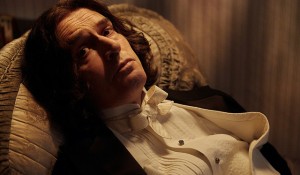 Other films to look out for are Rupert Everett’s Oscar Wilde-themed passion project THE HAPPY PRINCE in which he also stars alongside Colin Firth and Emily Watson. Robin Campillo’s rousing celebration of AIDS activism 120 BPM. MAURICE, a sumptuous restoration of the 1987 adaptation of E M Forster’s gay novel starring James Wilby and Rupert Graves.
Other films to look out for are Rupert Everett’s Oscar Wilde-themed passion project THE HAPPY PRINCE in which he also stars alongside Colin Firth and Emily Watson. Robin Campillo’s rousing celebration of AIDS activism 120 BPM. MAURICE, a sumptuous restoration of the 1987 adaptation of E M Forster’s gay novel starring James Wilby and Rupert Graves.  Avant-garde Berlinale Teddy feature HARD PAINT presents a startlingly cinematic look at how a college drop-out deals with his needs, and Locarno favourite, a saucy Sao Paolo-set vampire drama
Avant-garde Berlinale Teddy feature HARD PAINT presents a startlingly cinematic look at how a college drop-out deals with his needs, and Locarno favourite, a saucy Sao Paolo-set vampire drama 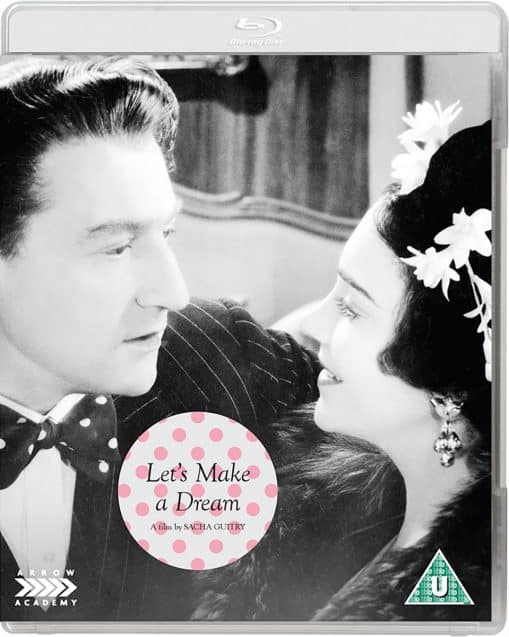
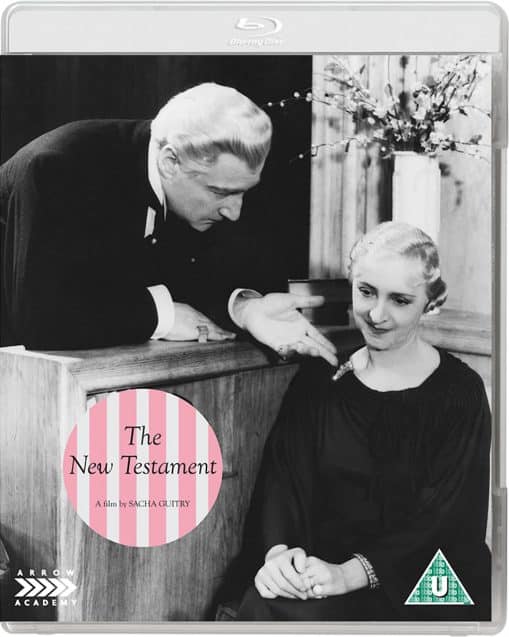
 London hosts KINOTEKA Film Festival for the 16th year running. This year celebrates 100 years of Polish independence with the latest cutting edge cinema and some lesser known archival gems now ripe for rediscovery, along with Q&As, masterclasses and musical entertainment. The festival also offers unique insight into Poland’s rich cultural history through cult classics, biopics, women in cinema and a drama from the liberated Nazi concentration camps. And some distinctly contemporary drama that captures the zeitgeist of Poland in the 21st century such as Rafael Kapelinski’s 2017 scabrously dark drama
London hosts KINOTEKA Film Festival for the 16th year running. This year celebrates 100 years of Polish independence with the latest cutting edge cinema and some lesser known archival gems now ripe for rediscovery, along with Q&As, masterclasses and musical entertainment. The festival also offers unique insight into Poland’s rich cultural history through cult classics, biopics, women in cinema and a drama from the liberated Nazi concentration camps. And some distinctly contemporary drama that captures the zeitgeist of Poland in the 21st century such as Rafael Kapelinski’s 2017 scabrously dark drama 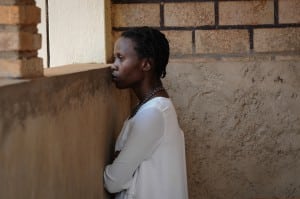 The Opening Night Gala commemorates the life of Krzysztof Krauze and his fruitful partnership with wife/co-director, Joanna Kos-Krauze with a screening of Karlovy Vary Award-winning Birds Are Singing in Kigali, a film exploring the life of two women who escape the genocide in Rwanda. There will also be a another chance to see her 2013 biopic drama
The Opening Night Gala commemorates the life of Krzysztof Krauze and his fruitful partnership with wife/co-director, Joanna Kos-Krauze with a screening of Karlovy Vary Award-winning Birds Are Singing in Kigali, a film exploring the life of two women who escape the genocide in Rwanda. There will also be a another chance to see her 2013 biopic drama  This year’s contemporary strand has a particularly focus on female directors. Anna Jadowska’s Wild Roses depicts a mother’s loneliness and struggle to come to terms with her life. Kasia Adamik’s Amok follows the true story of a committed murderer who incriminates himself by writing a novel revealing the killing. There will also be a chance to see the UK premiere of Maria Sadowska’s biopic Sztuka Kochania about the Polish sexologist Michalina Wislocka, who wrote the bestseller The Art of Loving – the first published guide to sexual health from behind the Iron Curtain.
This year’s contemporary strand has a particularly focus on female directors. Anna Jadowska’s Wild Roses depicts a mother’s loneliness and struggle to come to terms with her life. Kasia Adamik’s Amok follows the true story of a committed murderer who incriminates himself by writing a novel revealing the killing. There will also be a chance to see the UK premiere of Maria Sadowska’s biopic Sztuka Kochania about the Polish sexologist Michalina Wislocka, who wrote the bestseller The Art of Loving – the first published guide to sexual health from behind the Iron Curtain. Krzysztof Zanussi will be back again this year ‘in conversation’ about one of his earliest films, The Structure of Crystal (1969) (17 March, ICA). Andrzej Klimowski, one of Polish most celebrated graphic designers will be in town for a masterclass aimed at new and emerging filmmakers looking to create poster artwork. He designed this year’s festival poster.
Krzysztof Zanussi will be back again this year ‘in conversation’ about one of his earliest films, The Structure of Crystal (1969) (17 March, ICA). Andrzej Klimowski, one of Polish most celebrated graphic designers will be in town for a masterclass aimed at new and emerging filmmakers looking to create poster artwork. He designed this year’s festival poster. On 23 March, Kinoteka hosts a gourmet evening featuring the delicious cuisine of rising chef Flavia Borawska, accompanied by a film screening of Krzysztof Kieślowski’s classic Double Life of Veronique.
On 23 March, Kinoteka hosts a gourmet evening featuring the delicious cuisine of rising chef Flavia Borawska, accompanied by a film screening of Krzysztof Kieślowski’s classic Double Life of Veronique.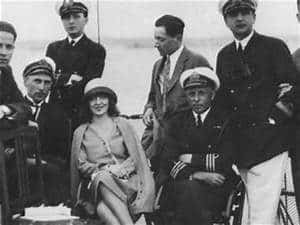
 CINEMA MADE IN ITALY returns to London’s Ciné Lumière, showcasing the latest releases from Italy complete with film-maker Q&A sessions. This year’s line-up includes eight new Italian films and a 1977 classic title
CINEMA MADE IN ITALY returns to London’s Ciné Lumière, showcasing the latest releases from Italy complete with film-maker Q&A sessions. This year’s line-up includes eight new Italian films and a 1977 classic title
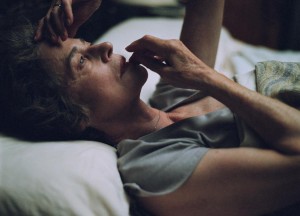
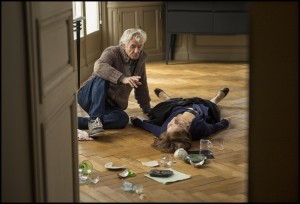 FOREIGN-LANGUAGE FILM OF THE YEAR (left)
FOREIGN-LANGUAGE FILM OF THE YEAR (left)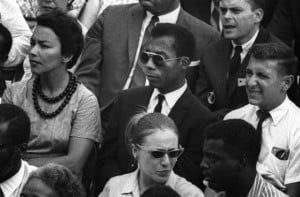 ACTOR OF THE YEAR
ACTOR OF THE YEAR YOUNG BRITISH/IRISH PERFORMER OF THE YEAR
YOUNG BRITISH/IRISH PERFORMER OF THE YEAR Dir: Elio Petri | Writer: Ugo Pirri | Cast: Ugo Tognazzi, Flavio Bucci, Daria Nicolodi | Italy | Comedy Drama 126′
Dir: Elio Petri | Writer: Ugo Pirri | Cast: Ugo Tognazzi, Flavio Bucci, Daria Nicolodi | Italy | Comedy Drama 126′ Hollywood may still be struggling with female representation as 2018 gets underway, but Europe has seen tremendous successes in the world of indie film where talented women of all ages are winning accolades in every sphere of the film industry, bringing their unique vision and intuition to a party that has continued to rock throughout the past year. Admittedly, there have been some really fabulous female roles recently – probably more so than for male actors. But on the other side of the camera, women have also created some thumping dramas; robust documentaries and bracingly refreshing genre outings: Lucrecia Martel’s mesmerising Argentinian historical fantasy ZAMA (LFF/left) and Julia Ducournau’s Belgo-French horror drama RAW (below/right) have been amongst the most outstanding features in recent memory. All these films provide great insight into the challenges women continue to face, both personally and in society as a whole, and do so without resorting to worthiness or sentimentality. So as we go forward into another year, here’s a flavour of what’s been happening in 2017.
Hollywood may still be struggling with female representation as 2018 gets underway, but Europe has seen tremendous successes in the world of indie film where talented women of all ages are winning accolades in every sphere of the film industry, bringing their unique vision and intuition to a party that has continued to rock throughout the past year. Admittedly, there have been some really fabulous female roles recently – probably more so than for male actors. But on the other side of the camera, women have also created some thumping dramas; robust documentaries and bracingly refreshing genre outings: Lucrecia Martel’s mesmerising Argentinian historical fantasy ZAMA (LFF/left) and Julia Ducournau’s Belgo-French horror drama RAW (below/right) have been amongst the most outstanding features in recent memory. All these films provide great insight into the challenges women continue to face, both personally and in society as a whole, and do so without resorting to worthiness or sentimentality. So as we go forward into another year, here’s a flavour of what’s been happening in 2017. It all started at SUNDANCE in January where documentarian Pascale Lamche’s engrossing film about Winnie Mandela, WINNIE, won Best World Doc and Maggie Betts was awarded a directing prize for her debut feature NOVITIATE, about a nun struggling to take and keep her vows in 1960s Rome. Eliza Hitman also bagged the coveted directing award for her gay-themed indie drama BEACH RATS, that looks at addiction from a young boy’s perspective.
It all started at SUNDANCE in January where documentarian Pascale Lamche’s engrossing film about Winnie Mandela, WINNIE, won Best World Doc and Maggie Betts was awarded a directing prize for her debut feature NOVITIATE, about a nun struggling to take and keep her vows in 1960s Rome. Eliza Hitman also bagged the coveted directing award for her gay-themed indie drama BEACH RATS, that looks at addiction from a young boy’s perspective.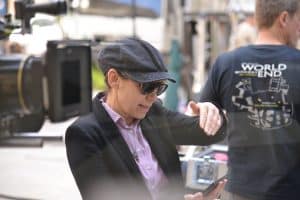 Meanwhile, back in Europe, BERLIN‘s Golden Bear went to Hungarian filmmaker Ildiko Enyedi (right) for her thoughtful and inventive exploration of adult loneliness and alienation BODY AND SOUL. Agnieska Holland won a Silver Bear for her green eco feature SPOOR, and Catalan newcomer Carla Simón went home with a prize for her feature debut SUMMER 1993 tackling the more surprising aspects of life for an orphaned child who goes to live with her cousins. CANNES 2017, the festival’s 70th celebration, also proved to be another strong year for female talent. Claire Simon’s first comedy – looking at love in later life – LET THE SUNSHINE IN was well-received and provided a playful role for Juliette Binoche, which she performed with gusto. Agnès Varda’s entertaining travel piece FACES PLACES took us all round France and finally showed Jean-Luc Godard’s true colours, winning awards at TIFF and Cannes. Newcomers were awarded in the shape of Léa Mysius whose AVA won the SACD prize for its tender exploration of oncoming blindness, and Léonor Séraille whose touching drama about the after-effects of romantic abandonment MONTPARNASSE RENDEZVOUS won the Caméra D’Or.
Meanwhile, back in Europe, BERLIN‘s Golden Bear went to Hungarian filmmaker Ildiko Enyedi (right) for her thoughtful and inventive exploration of adult loneliness and alienation BODY AND SOUL. Agnieska Holland won a Silver Bear for her green eco feature SPOOR, and Catalan newcomer Carla Simón went home with a prize for her feature debut SUMMER 1993 tackling the more surprising aspects of life for an orphaned child who goes to live with her cousins. CANNES 2017, the festival’s 70th celebration, also proved to be another strong year for female talent. Claire Simon’s first comedy – looking at love in later life – LET THE SUNSHINE IN was well-received and provided a playful role for Juliette Binoche, which she performed with gusto. Agnès Varda’s entertaining travel piece FACES PLACES took us all round France and finally showed Jean-Luc Godard’s true colours, winning awards at TIFF and Cannes. Newcomers were awarded in the shape of Léa Mysius whose AVA won the SACD prize for its tender exploration of oncoming blindness, and Léonor Séraille whose touching drama about the after-effects of romantic abandonment MONTPARNASSE RENDEZVOUS won the Caméra D’Or. The Doyenne of French contemporary cinema Isabelle Huppert won Best Actress in LOCARNO 2017 for her performance as a woman who morphs from a meek soul to a force to be reckoned with when she is struck by lightening, in Serge Bozon’s dark comedy MADAME HYDE. Huppert has been winning accolades since the 1970s but she still has to challenge Hollywood’s Ann Doran (1911-2000) on film credits (374) – but there is plenty of time!). Meanwhile, Nastassja Kinski was awarded a Lifetime Achievement Honour for her extensive and eclectic contribution to World cinema (Paris,Texas, Inland Empire, Cat People and Tess to name a few).
The Doyenne of French contemporary cinema Isabelle Huppert won Best Actress in LOCARNO 2017 for her performance as a woman who morphs from a meek soul to a force to be reckoned with when she is struck by lightening, in Serge Bozon’s dark comedy MADAME HYDE. Huppert has been winning accolades since the 1970s but she still has to challenge Hollywood’s Ann Doran (1911-2000) on film credits (374) – but there is plenty of time!). Meanwhile, Nastassja Kinski was awarded a Lifetime Achievement Honour for her extensive and eclectic contribution to World cinema (Paris,Texas, Inland Empire, Cat People and Tess to name a few). With a Jury headed by Annette Bening, VENICE again showed women in a strong light. Away from the Hollywood-fraught main competition, this year’s Orizzonti Award was awarded to Susanna Nicchiarelli’s NICO, 1988, a stunning biopic of the final years of the renowned model and musician Christa Pfaffen, played by a feisty Trine Dyrholm. And Sara Forestier’s Venice Days winning debut M showed how a stuttering girl and her illiterate boyfriend help each other overcome adversity. Charlotte Rampling won the prize for Best Actress for her portrait of strength in the face of her husbands’ imprisonment in Andrea Pallaoro’s HANNAH.
With a Jury headed by Annette Bening, VENICE again showed women in a strong light. Away from the Hollywood-fraught main competition, this year’s Orizzonti Award was awarded to Susanna Nicchiarelli’s NICO, 1988, a stunning biopic of the final years of the renowned model and musician Christa Pfaffen, played by a feisty Trine Dyrholm. And Sara Forestier’s Venice Days winning debut M showed how a stuttering girl and her illiterate boyfriend help each other overcome adversity. Charlotte Rampling won the prize for Best Actress for her portrait of strength in the face of her husbands’ imprisonment in Andrea Pallaoro’s HANNAH.  At last but not least, Hong Kong director Vivianne Qu (left/LFF) was awarded the Fei Mei prize at PINGYAO’s inaugural CROUCHING TIGER, HIDDEN DRAGON film festival and the Film Festival of India’s Silver Peacock for her delicately charming feature ANGELS WEAR WHITE that deftly raises the harrowing plight of women facing sexual abuse in the mainland. It seems that this is a hot potato the superpowers of China and US still have in common. But on a positive note, LADYBIRD Greta Gerwig’s first film as a writer and director, has been sweeping the boards critically all over the US and is the buzzworthy comedy drama of 2018 (coming in February). So that’s something else to look forward to. MT
At last but not least, Hong Kong director Vivianne Qu (left/LFF) was awarded the Fei Mei prize at PINGYAO’s inaugural CROUCHING TIGER, HIDDEN DRAGON film festival and the Film Festival of India’s Silver Peacock for her delicately charming feature ANGELS WEAR WHITE that deftly raises the harrowing plight of women facing sexual abuse in the mainland. It seems that this is a hot potato the superpowers of China and US still have in common. But on a positive note, LADYBIRD Greta Gerwig’s first film as a writer and director, has been sweeping the boards critically all over the US and is the buzzworthy comedy drama of 2018 (coming in February). So that’s something else to look forward to. MT US DRAMA –
US DRAMA – Filmmaker Maren Ade has created one of the most poignant and refreshingly humorous German arthouse comedy dramas of recent memory – it never drags despite its three-hour running time. Picturing the absurd and often awkward nature of family relationships, this is a life-affirming experience not to be missed, especially at Christmas time. After The Forest for the Trees and Everyone Else, Ade is working her way slowly but surely to the top as most of the most refreshing European writer directors around..
Filmmaker Maren Ade has created one of the most poignant and refreshingly humorous German arthouse comedy dramas of recent memory – it never drags despite its three-hour running time. Picturing the absurd and often awkward nature of family relationships, this is a life-affirming experience not to be missed, especially at Christmas time. After The Forest for the Trees and Everyone Else, Ade is working her way slowly but surely to the top as most of the most refreshing European writer directors around.. There’s something sad and awkwardly compulsive about this cautionary tale of a misguided intergenerational liaison between a lonely man and a glib young woman who meet in an island paradise. One of the best recent dramas about delusional love and its grim aftermath that perfectly epitomises the sinking realisation of being ‘over the hill’ on a holiday fling, while still holding on to the dream . Slim and but beautifully scenic and deeply resonant in its evergreen theme.
There’s something sad and awkwardly compulsive about this cautionary tale of a misguided intergenerational liaison between a lonely man and a glib young woman who meet in an island paradise. One of the best recent dramas about delusional love and its grim aftermath that perfectly epitomises the sinking realisation of being ‘over the hill’ on a holiday fling, while still holding on to the dream . Slim and but beautifully scenic and deeply resonant in its evergreen theme.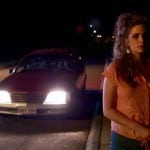 THRILLER –
THRILLER – 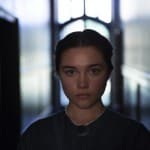 UK DEBUT –
UK DEBUT – 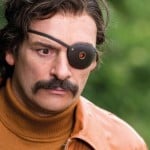 UK COMEDY –
UK COMEDY –
 Hopkins’ fraud of a film is full of middle-aged cyphers floating around in a fantasy world of the Seventies where they meet for coffee mornings and discuss worthy causes. But in the real place, this lot passed on decades ago to be replaced by the likes of Hugh Skinner’s fundraising nerd or the smiling Romanians touting The Big Issue at every street corner. Robert Festinger’s script teeters from crass to cringeworthy with no laughs to be had, and a score that jars. Hampstead is utterly specious and hollow – even Diane Keaton can’t save it.
Hopkins’ fraud of a film is full of middle-aged cyphers floating around in a fantasy world of the Seventies where they meet for coffee mornings and discuss worthy causes. But in the real place, this lot passed on decades ago to be replaced by the likes of Hugh Skinner’s fundraising nerd or the smiling Romanians touting The Big Issue at every street corner. Robert Festinger’s script teeters from crass to cringeworthy with no laughs to be had, and a score that jars. Hampstead is utterly specious and hollow – even Diane Keaton can’t save it.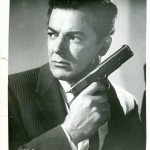 A fantastic box set that brings together dazzling high def print of some of the best films in the crime genre: THE DARK MIRROR (1946) starring Olivia de Havilland; Fritz Lang’s SECRET BEYOND THE DOOR (1947) with Joan Bennett and Michael Redgrave; FORCE OF EVIL (1948) directed by the underrated Abraham Polonsky; and Cornel Joseph H Lewis’ THE BIG COMBO (1955); with its terrific score by David Raksin with dynamite duo Cornel Wilde and Jean Wallace. The dual format edition comes with a hardback book on the films. MT
A fantastic box set that brings together dazzling high def print of some of the best films in the crime genre: THE DARK MIRROR (1946) starring Olivia de Havilland; Fritz Lang’s SECRET BEYOND THE DOOR (1947) with Joan Bennett and Michael Redgrave; FORCE OF EVIL (1948) directed by the underrated Abraham Polonsky; and Cornel Joseph H Lewis’ THE BIG COMBO (1955); with its terrific score by David Raksin with dynamite duo Cornel Wilde and Jean Wallace. The dual format edition comes with a hardback book on the films. MT